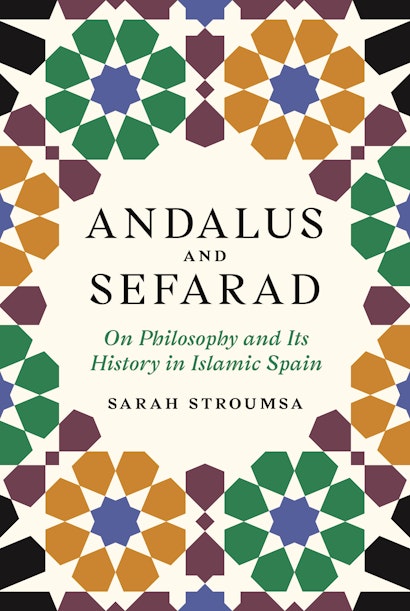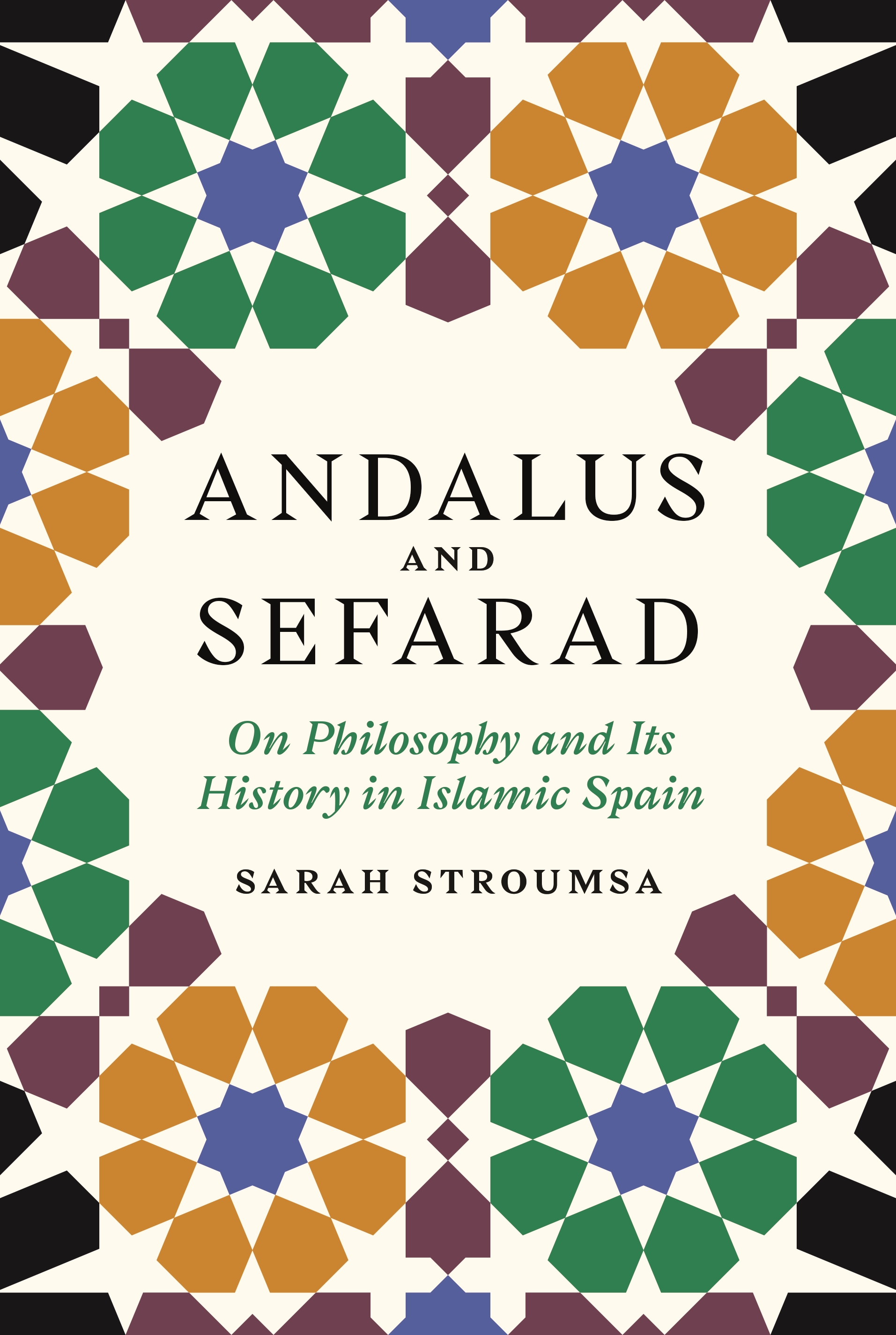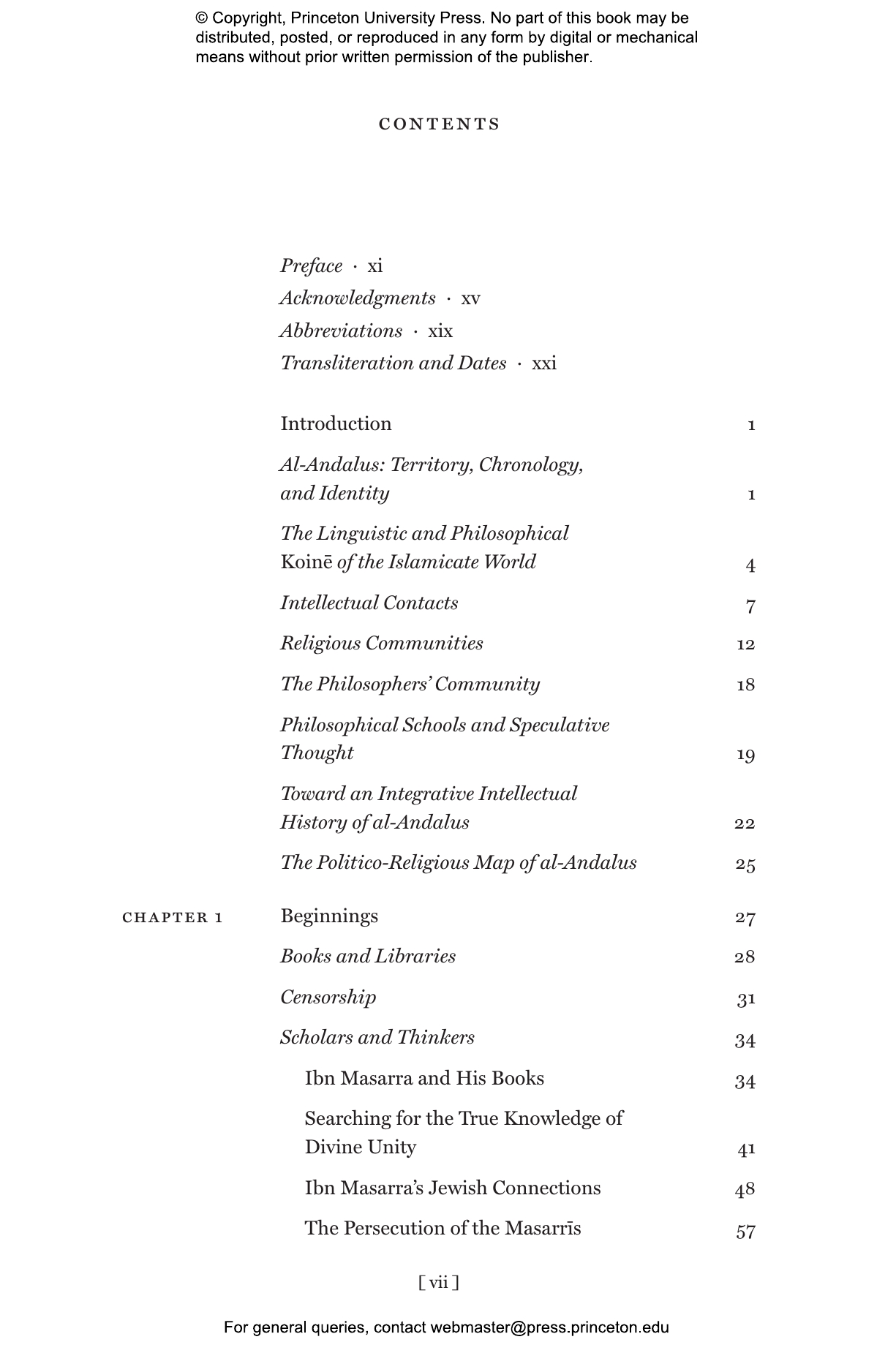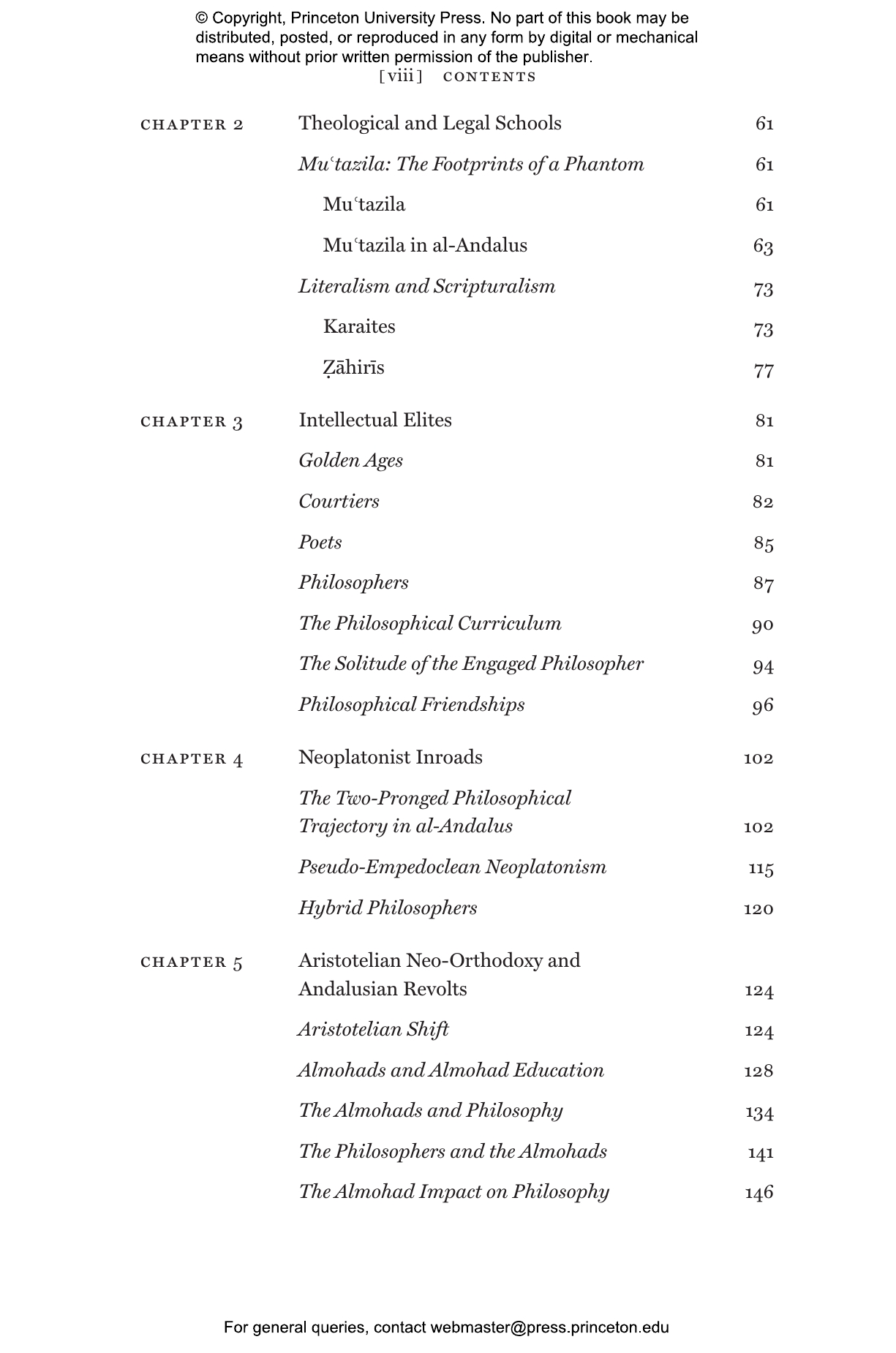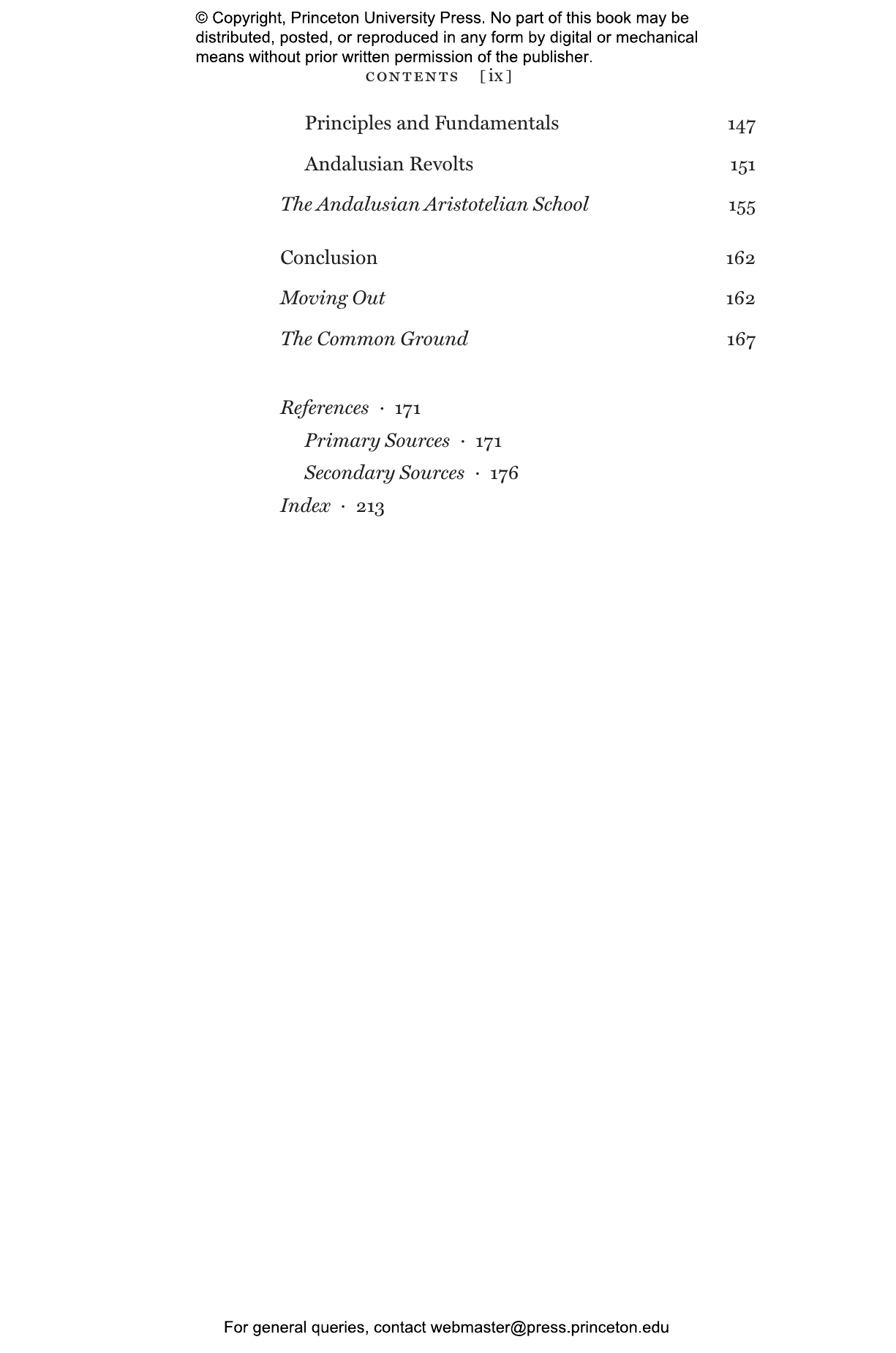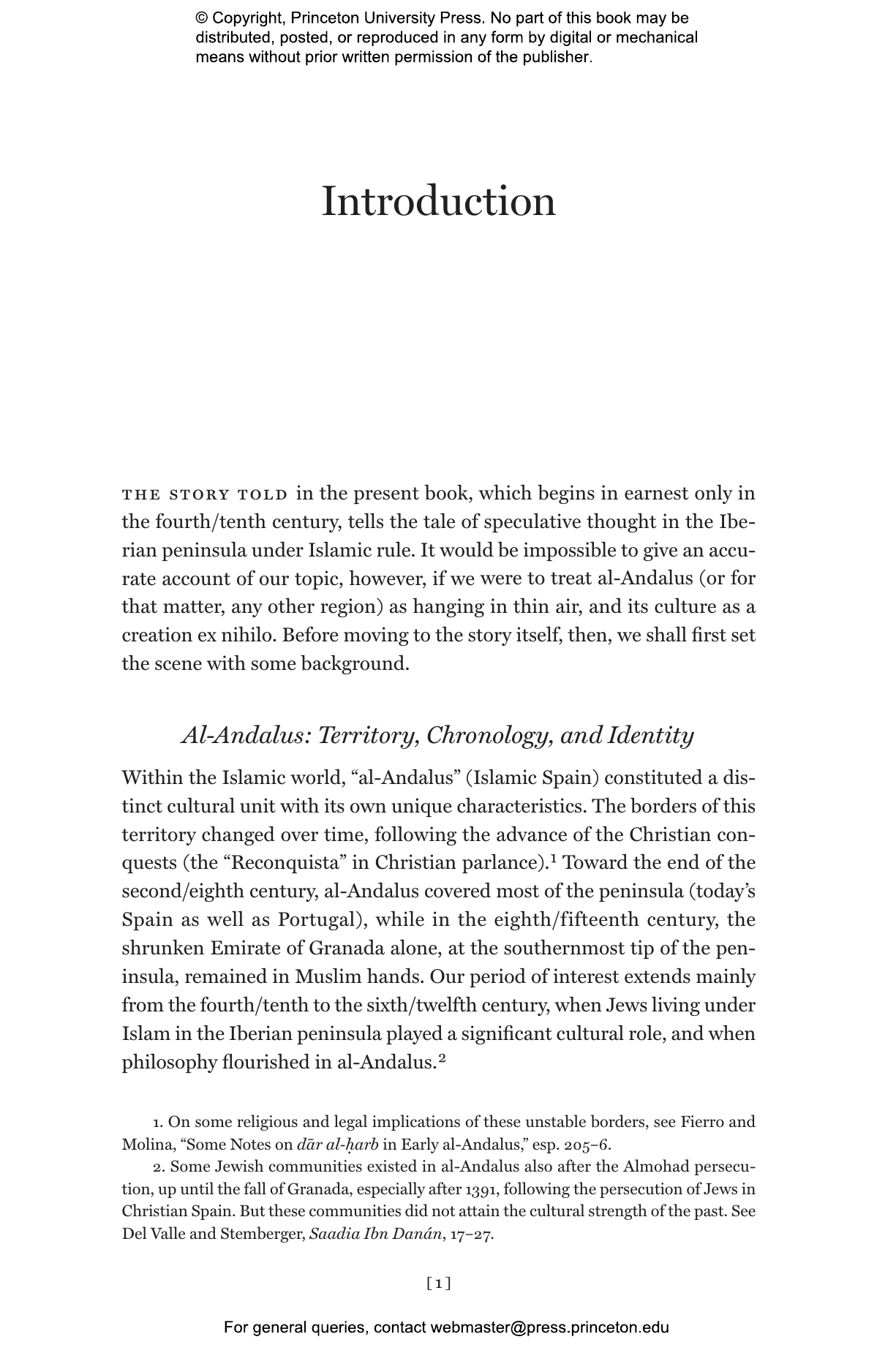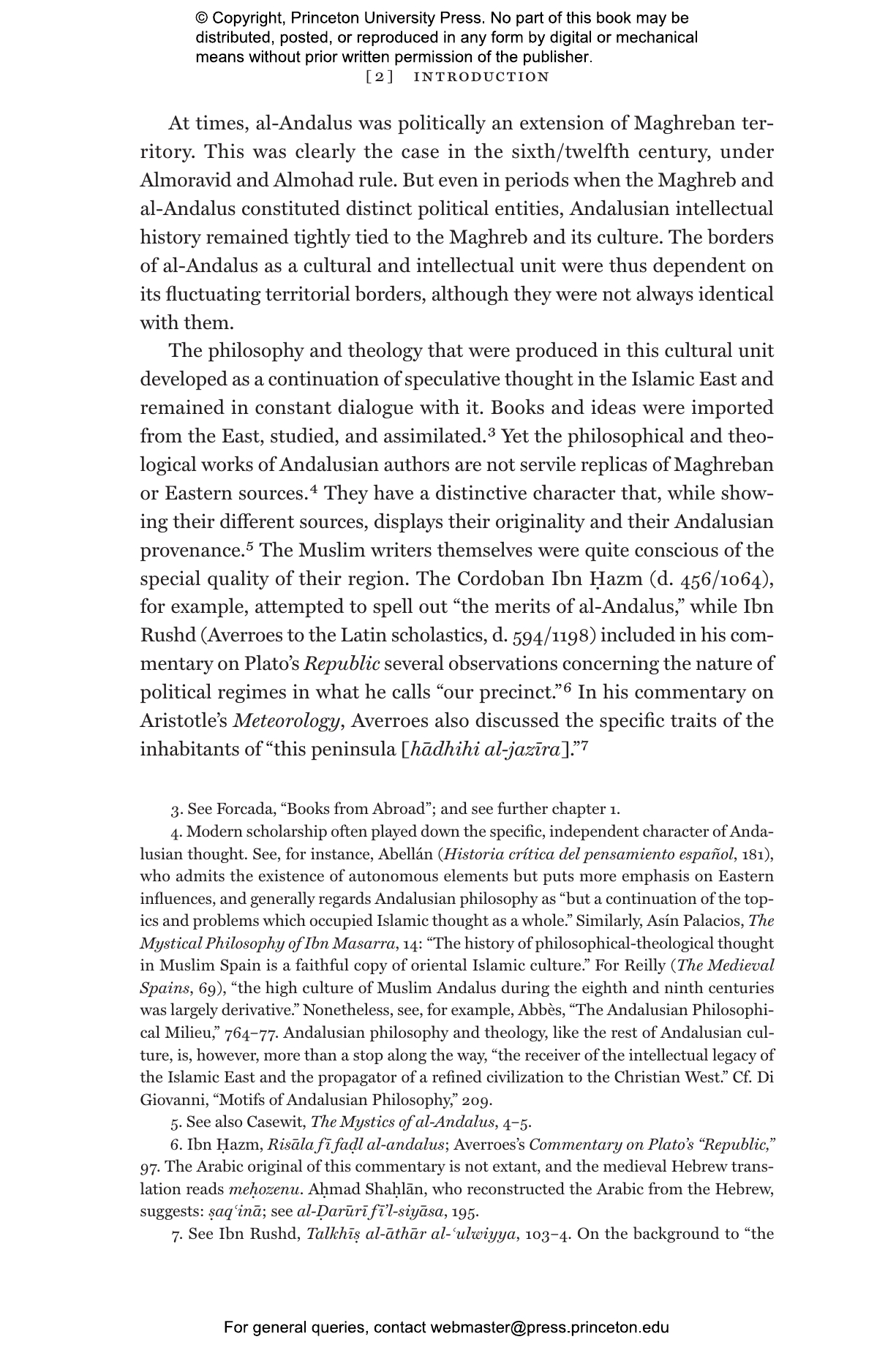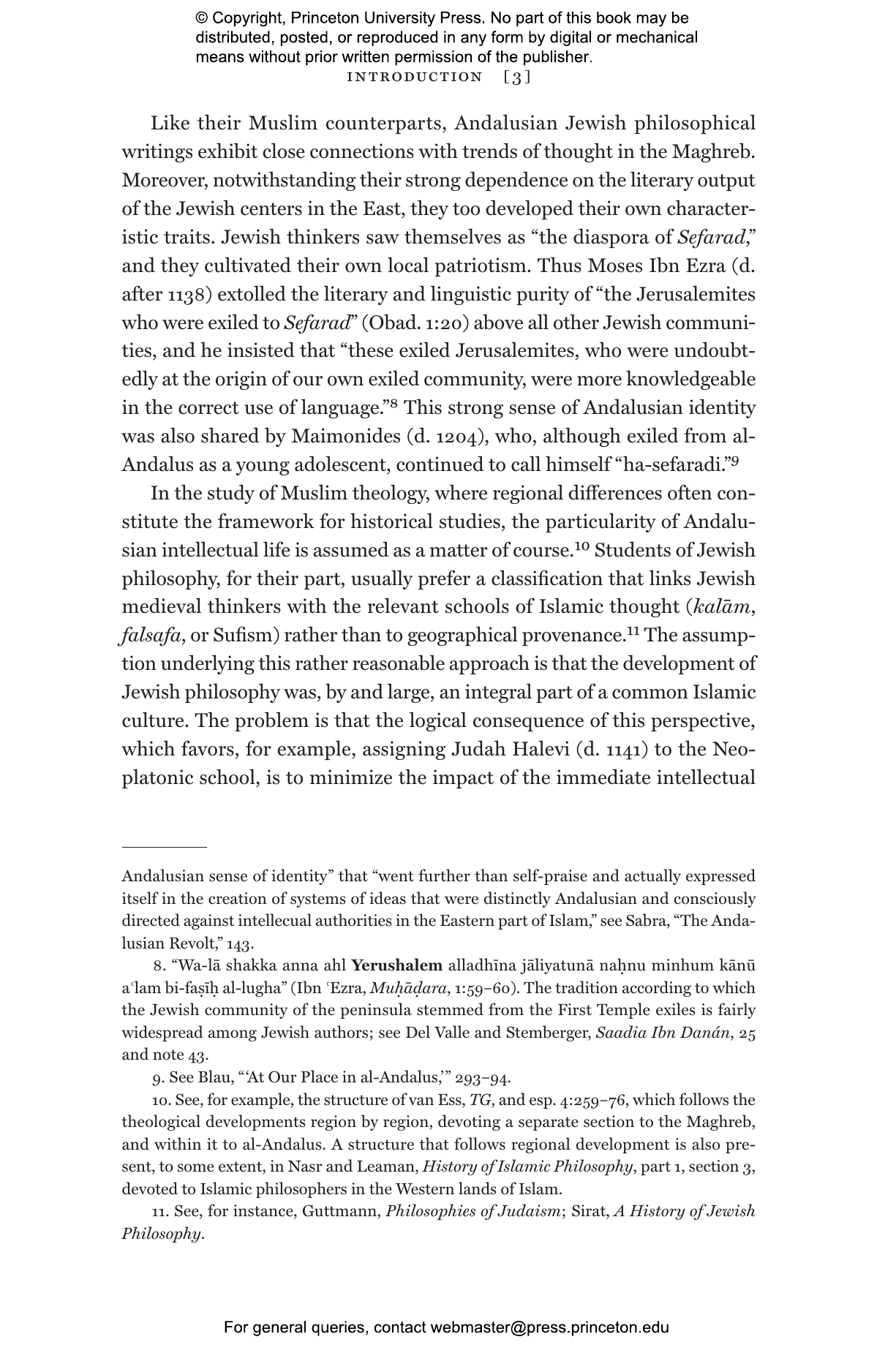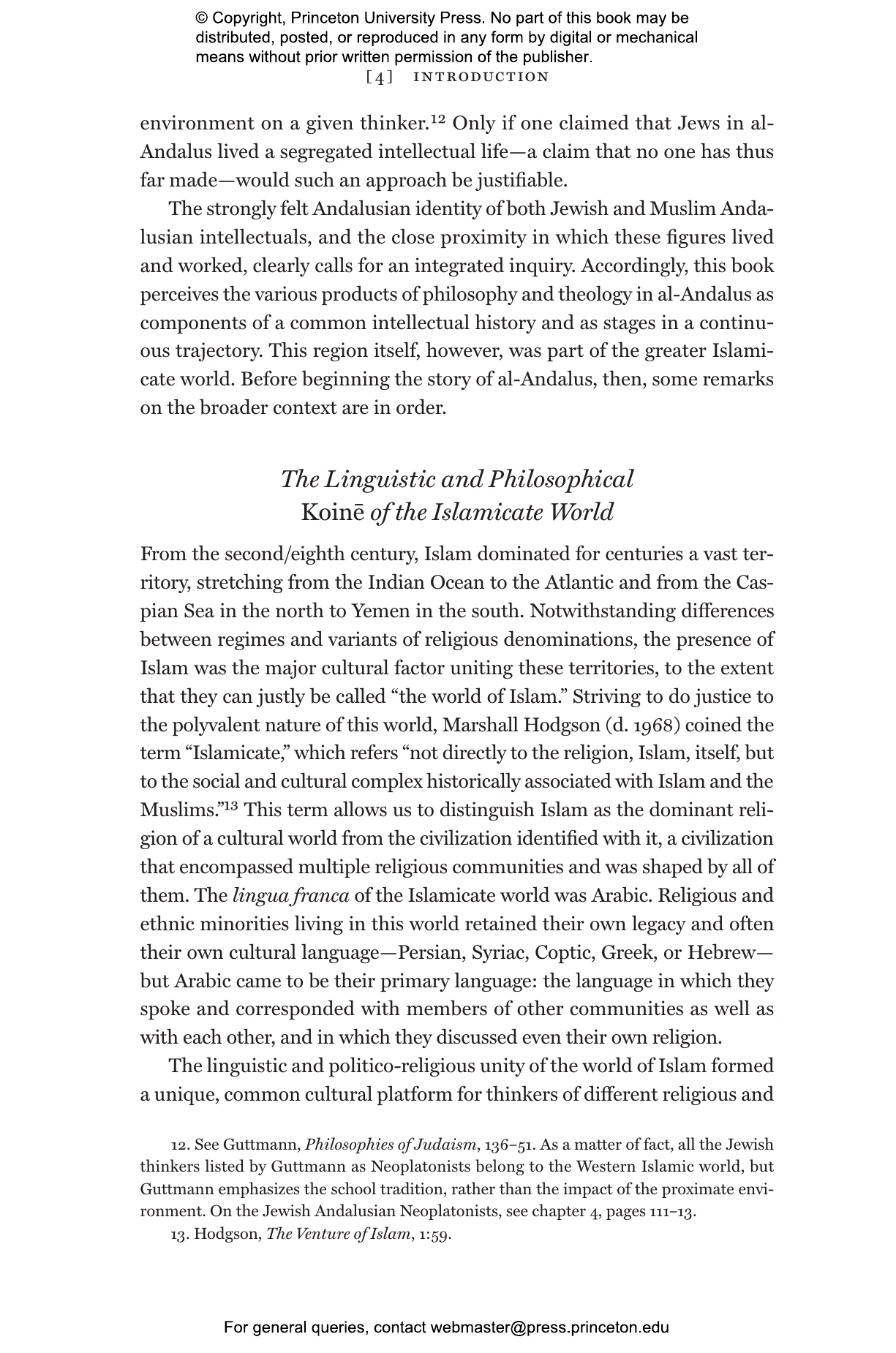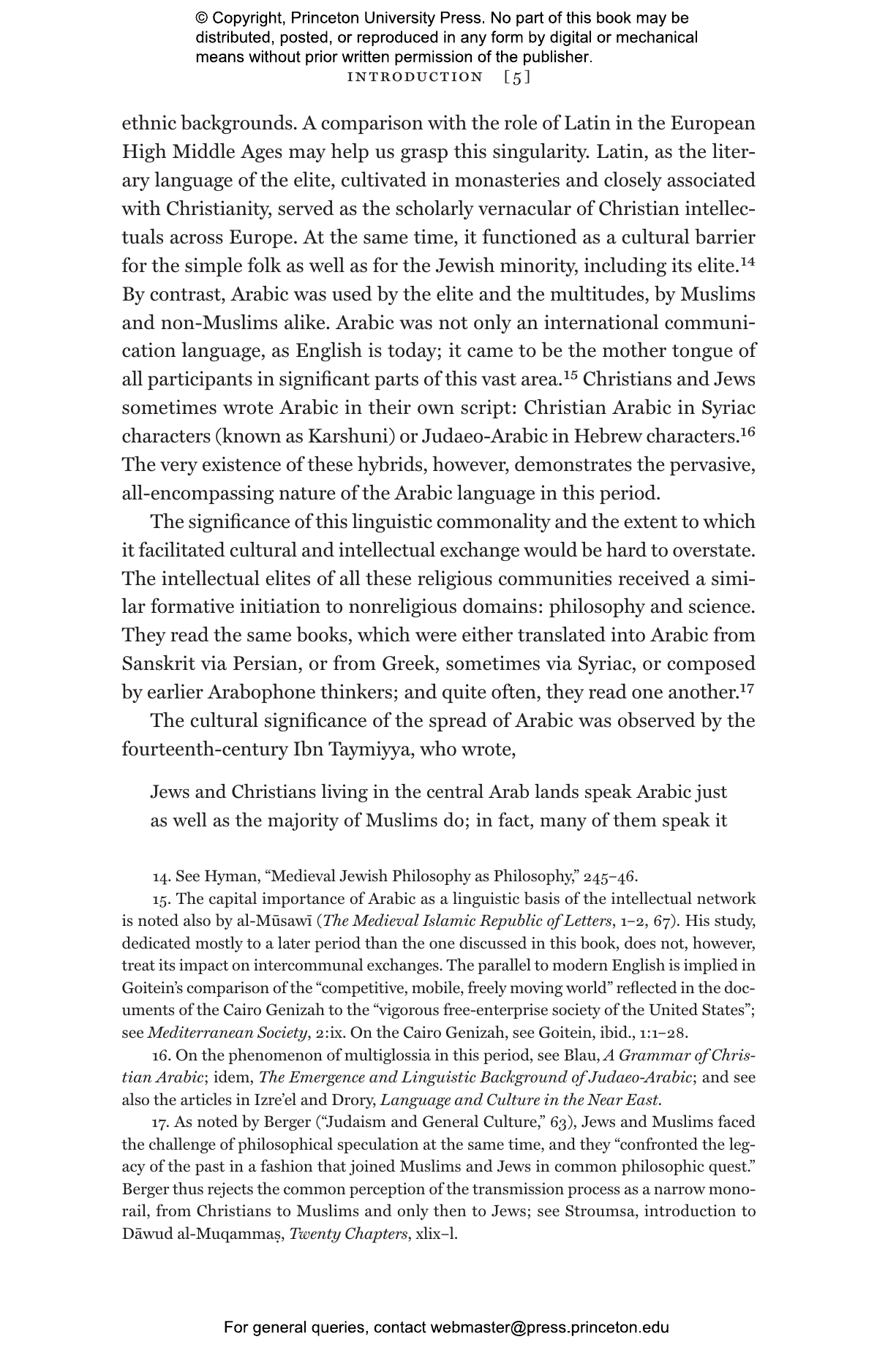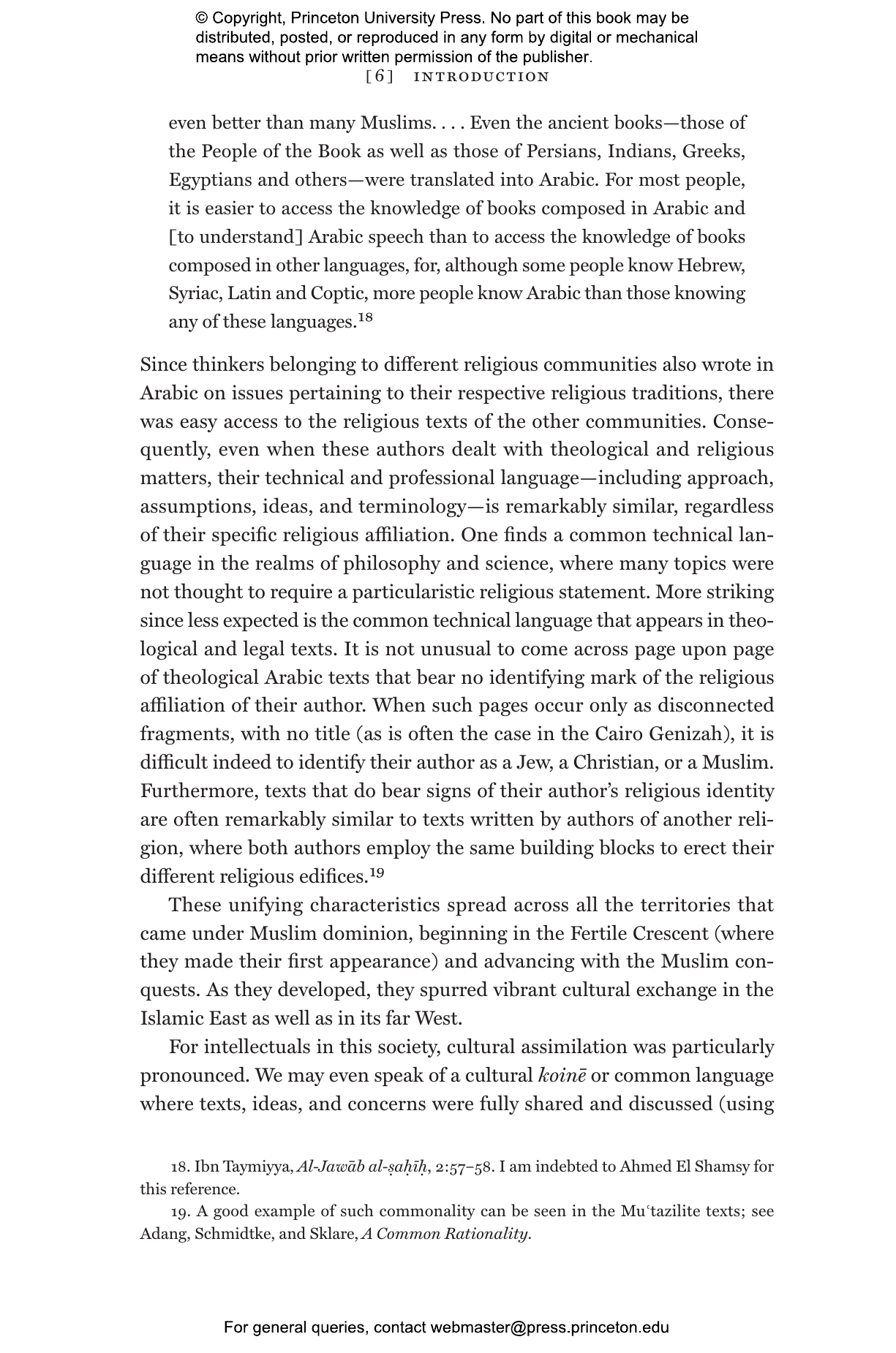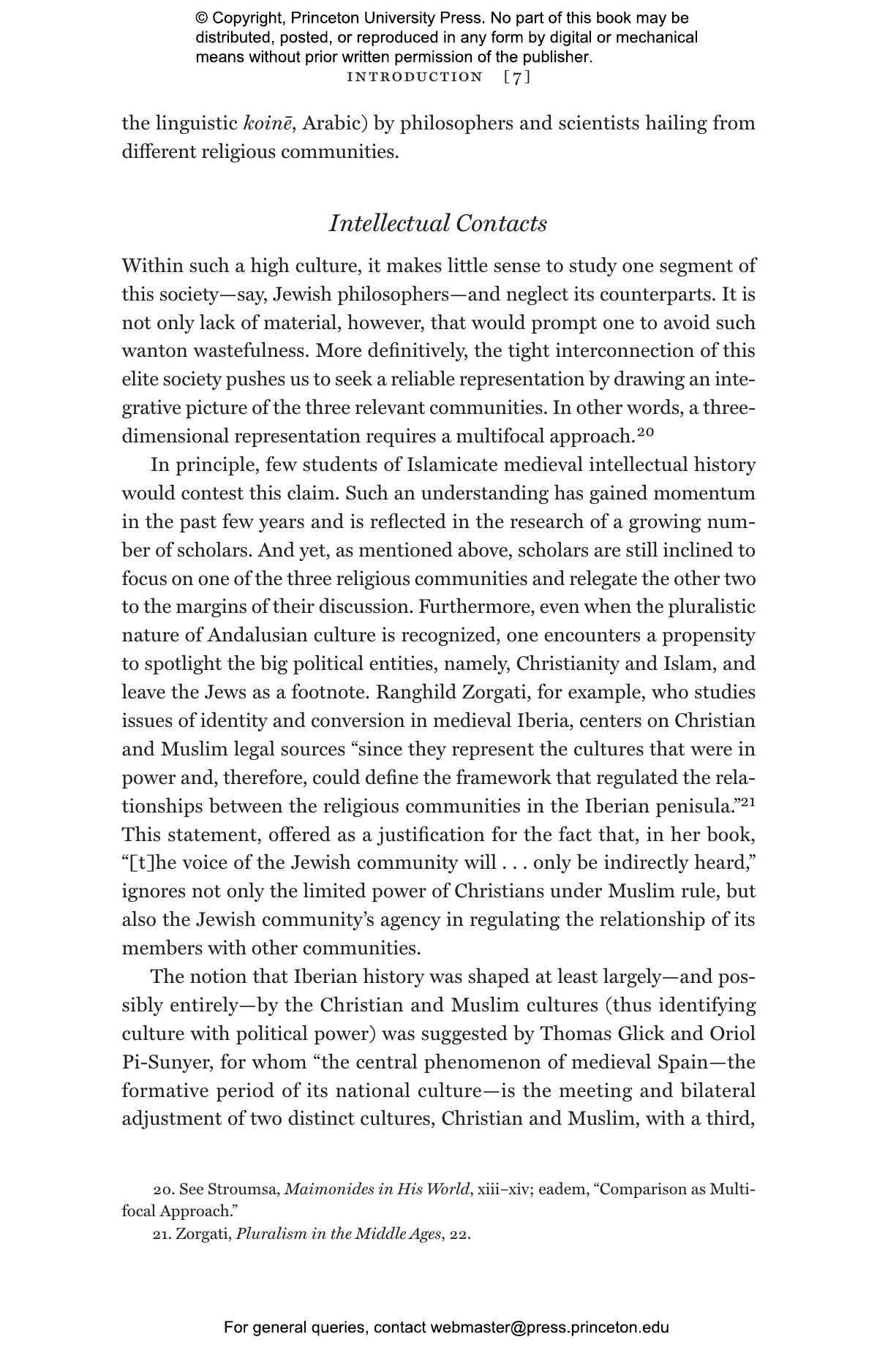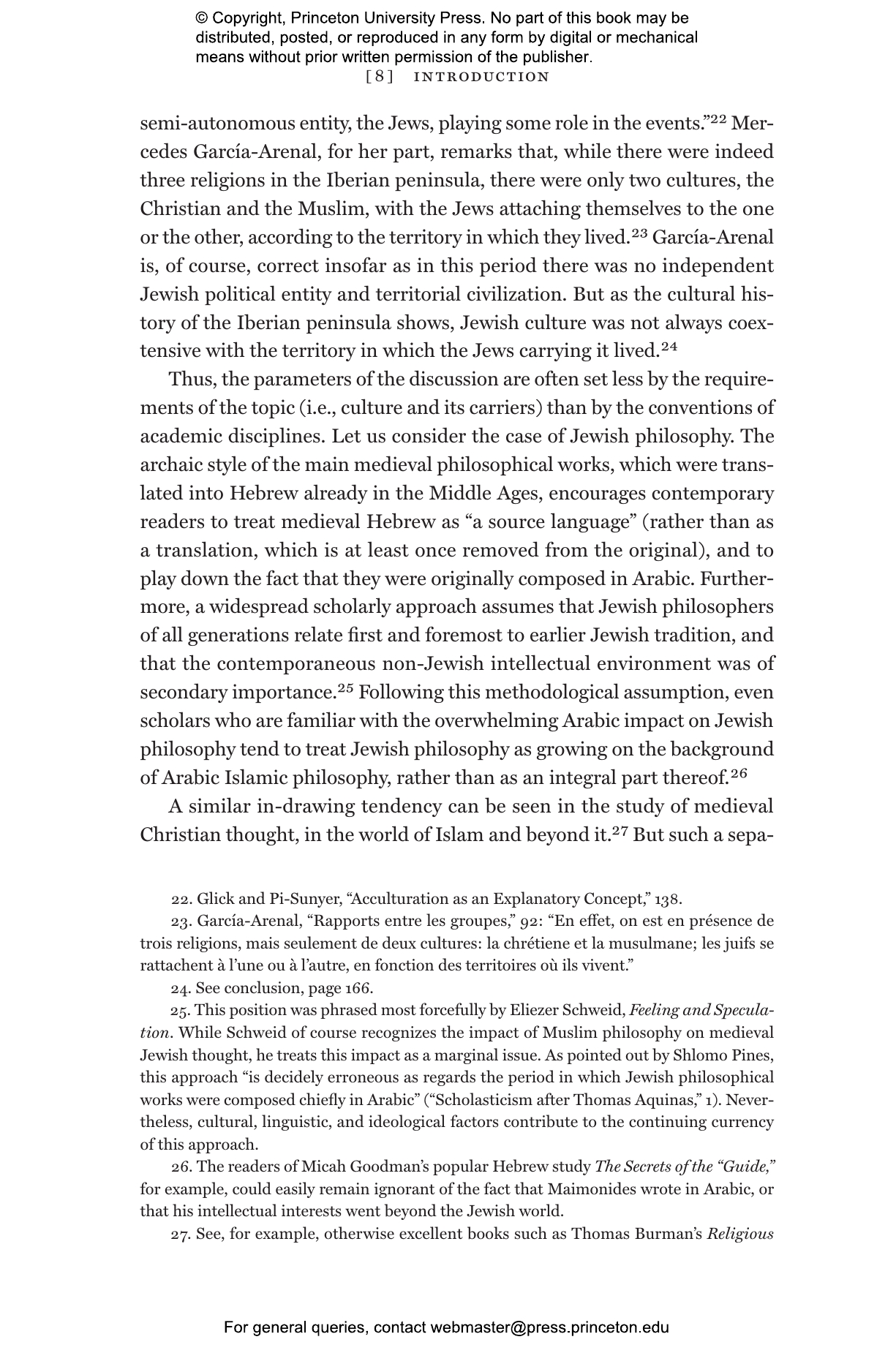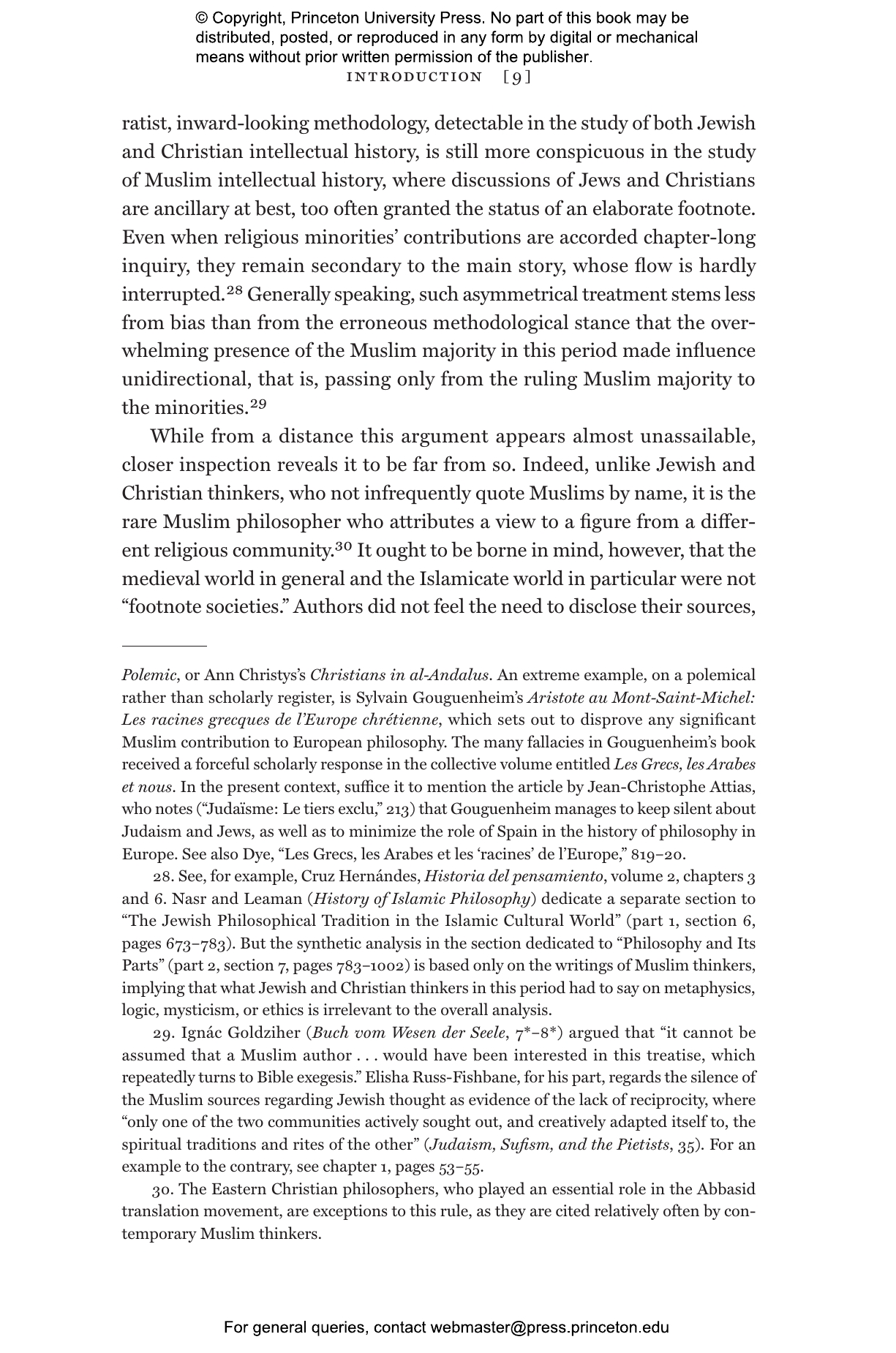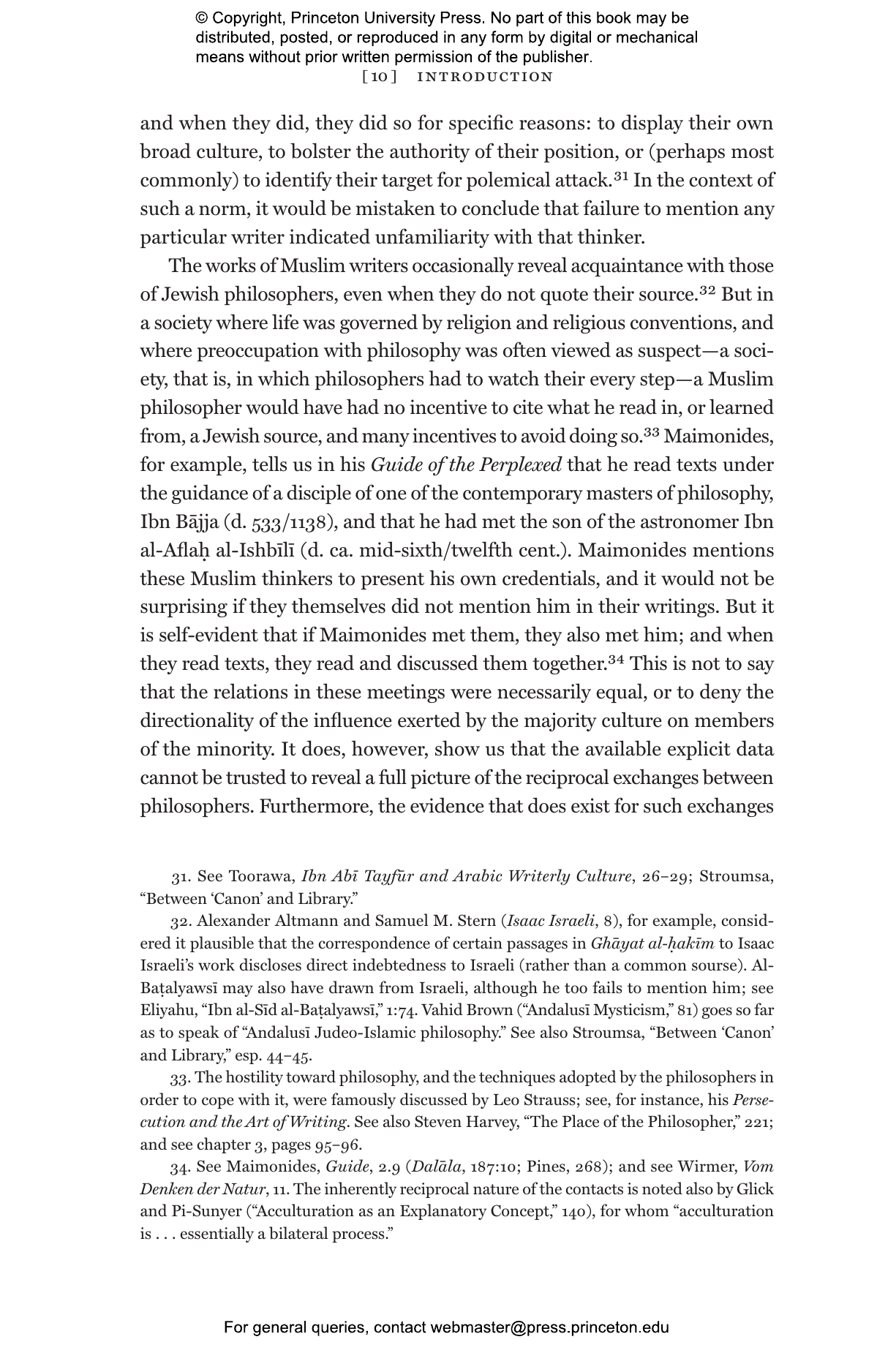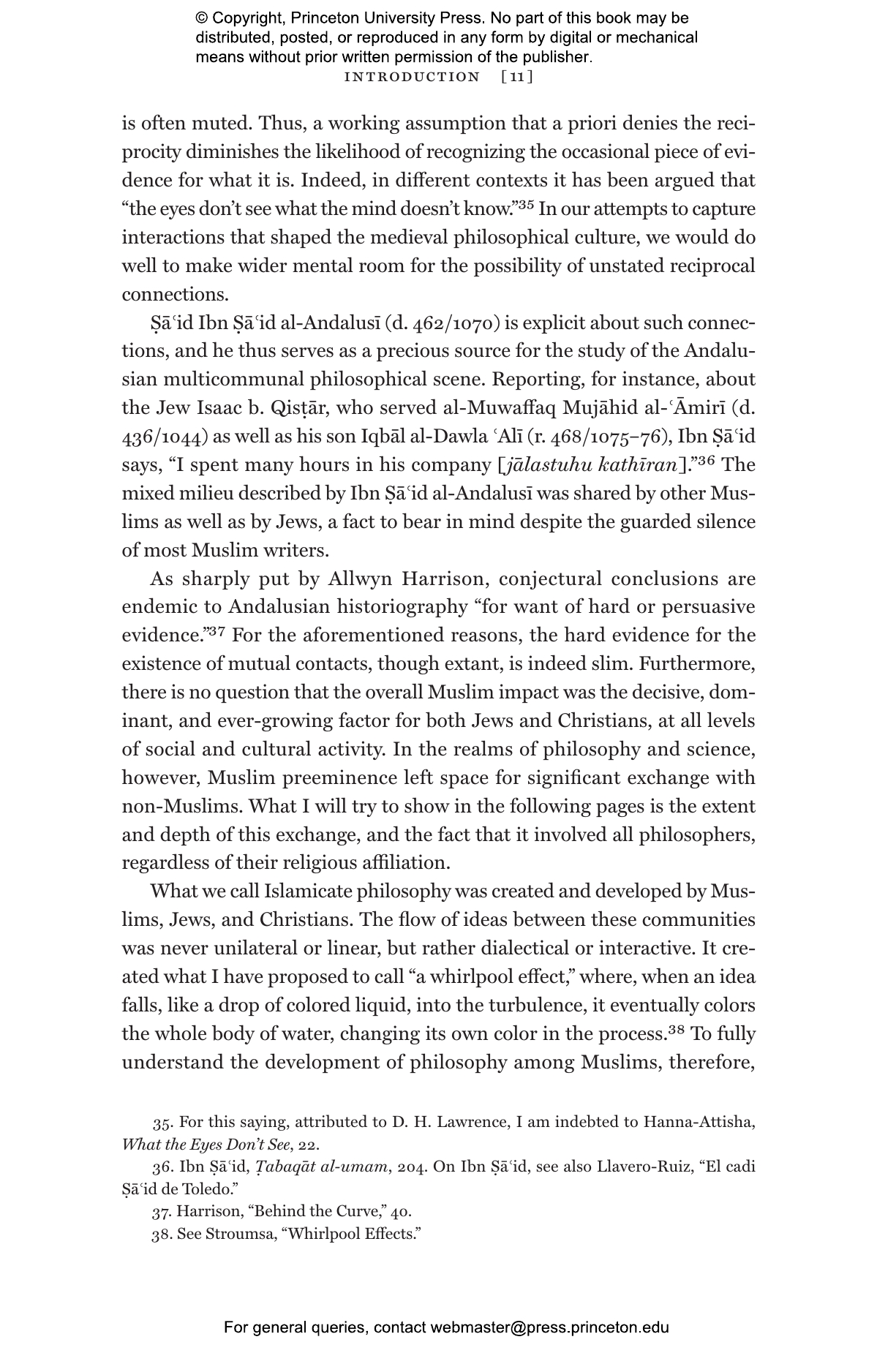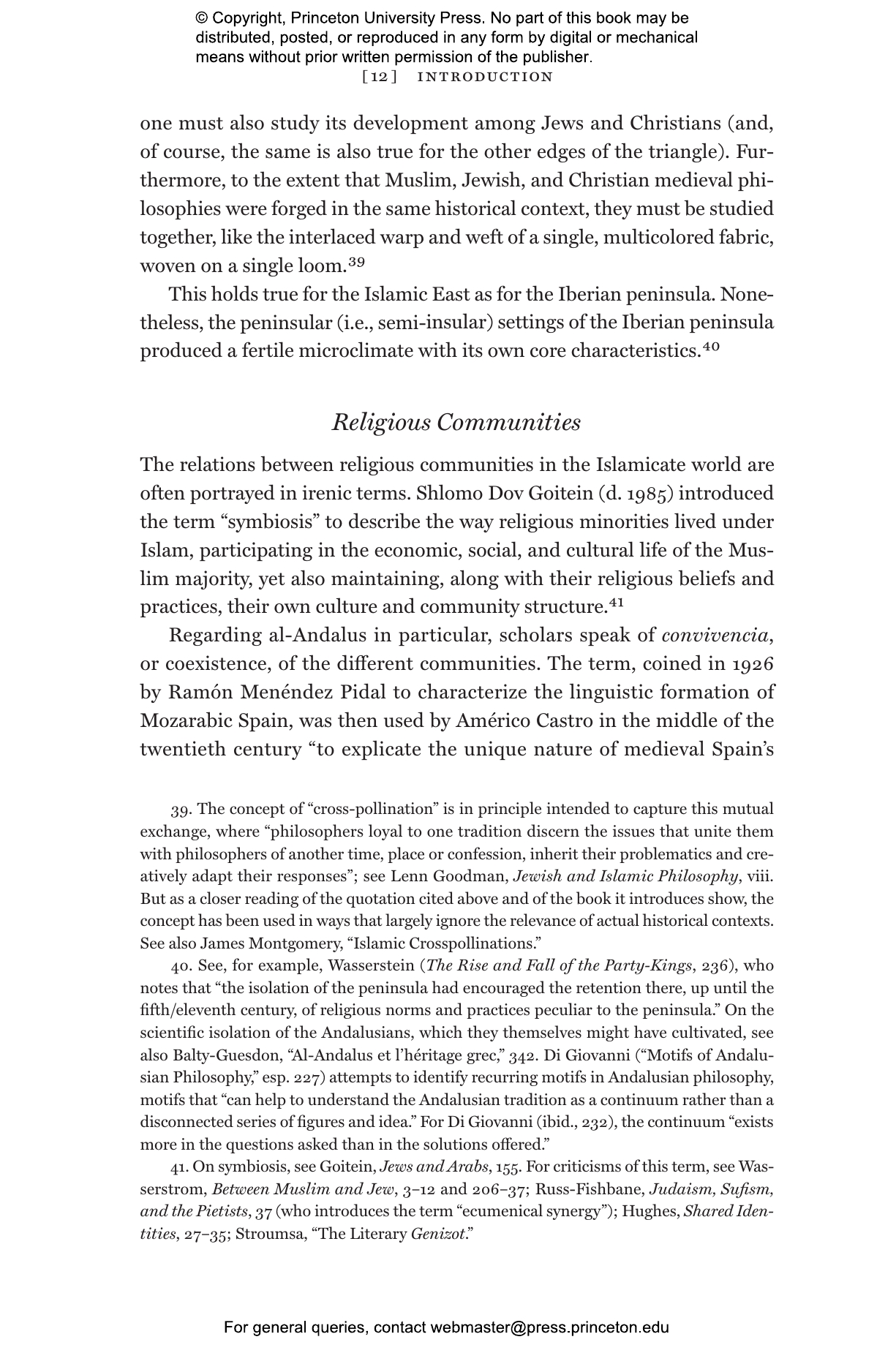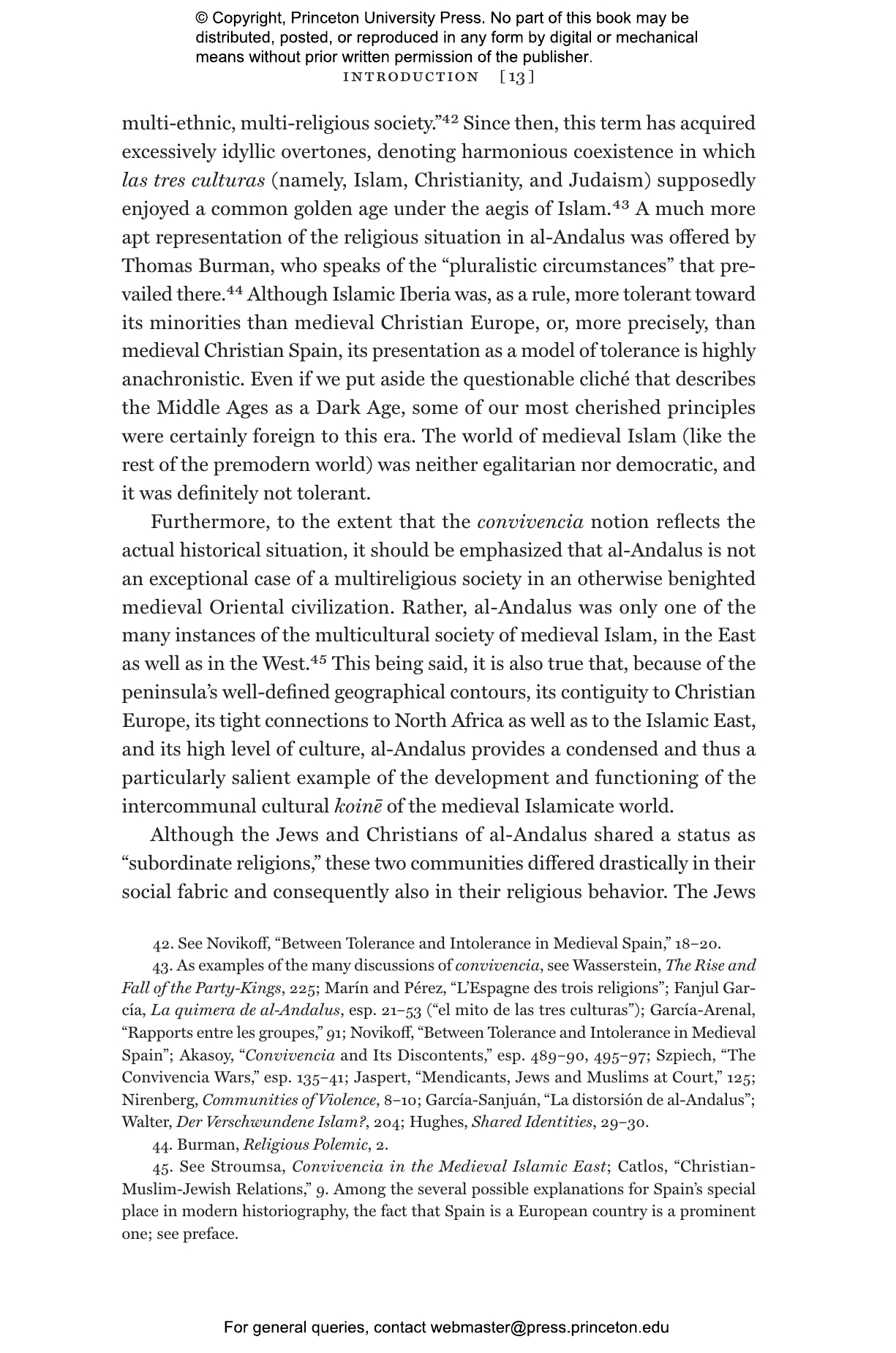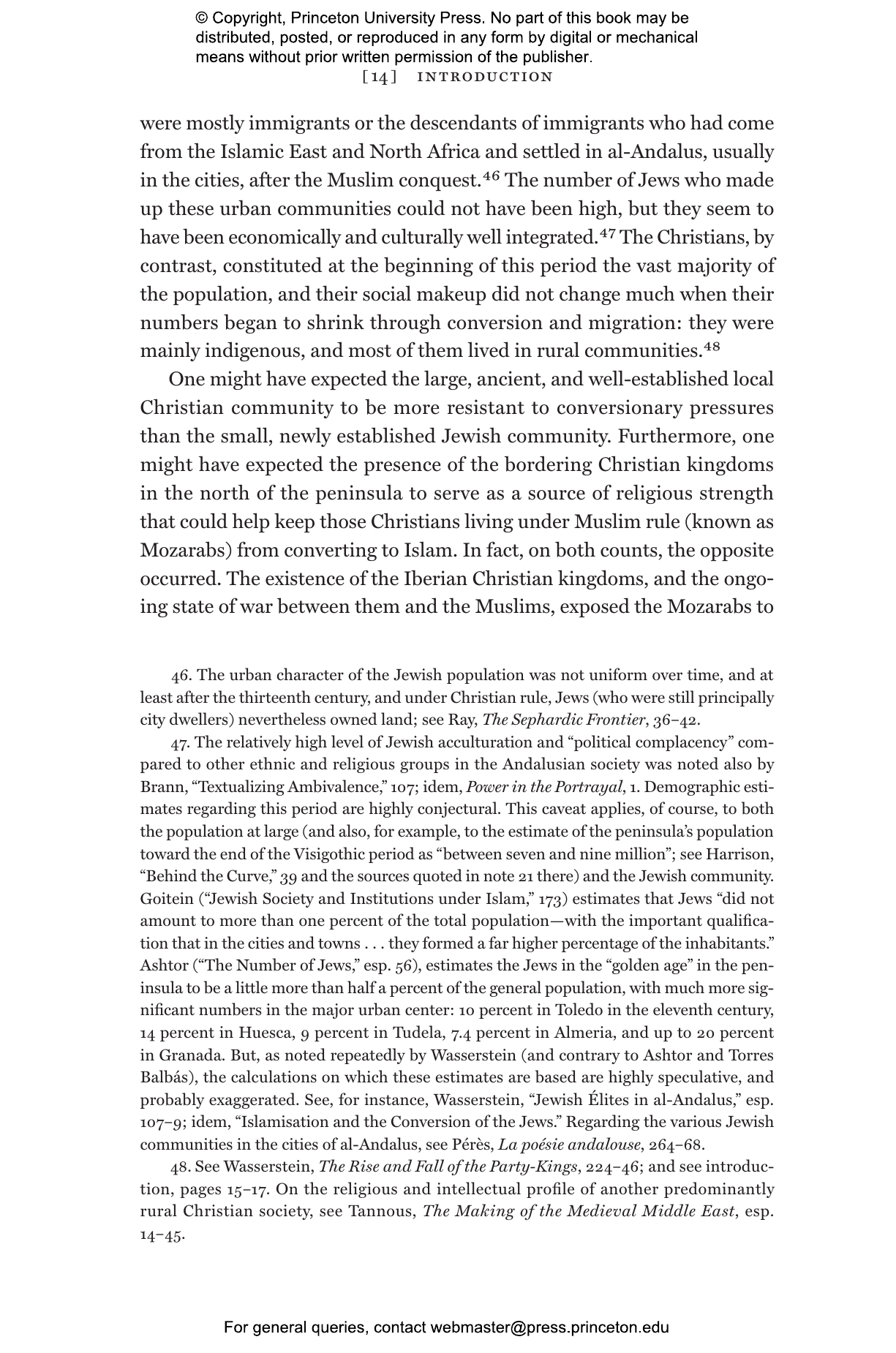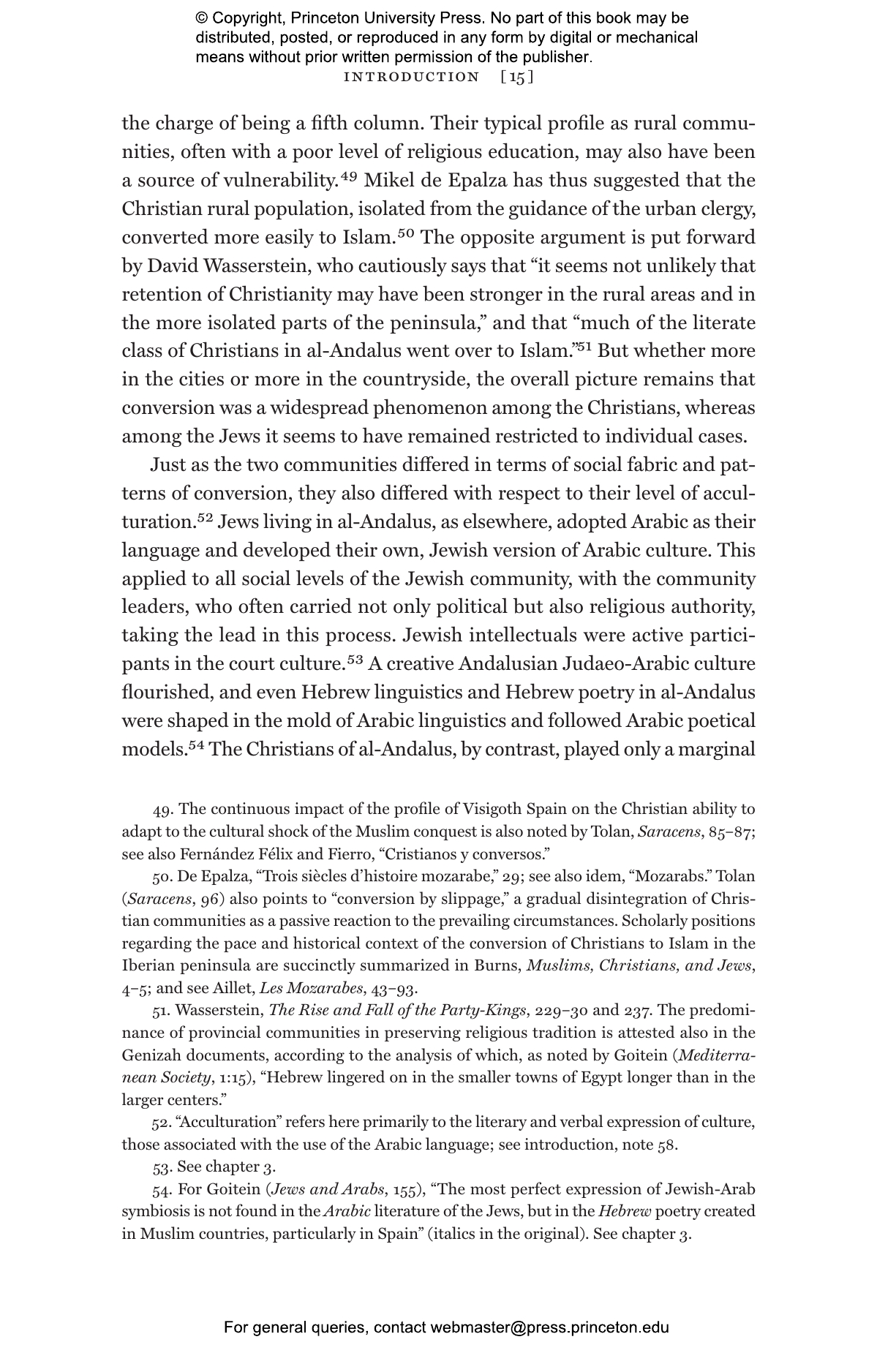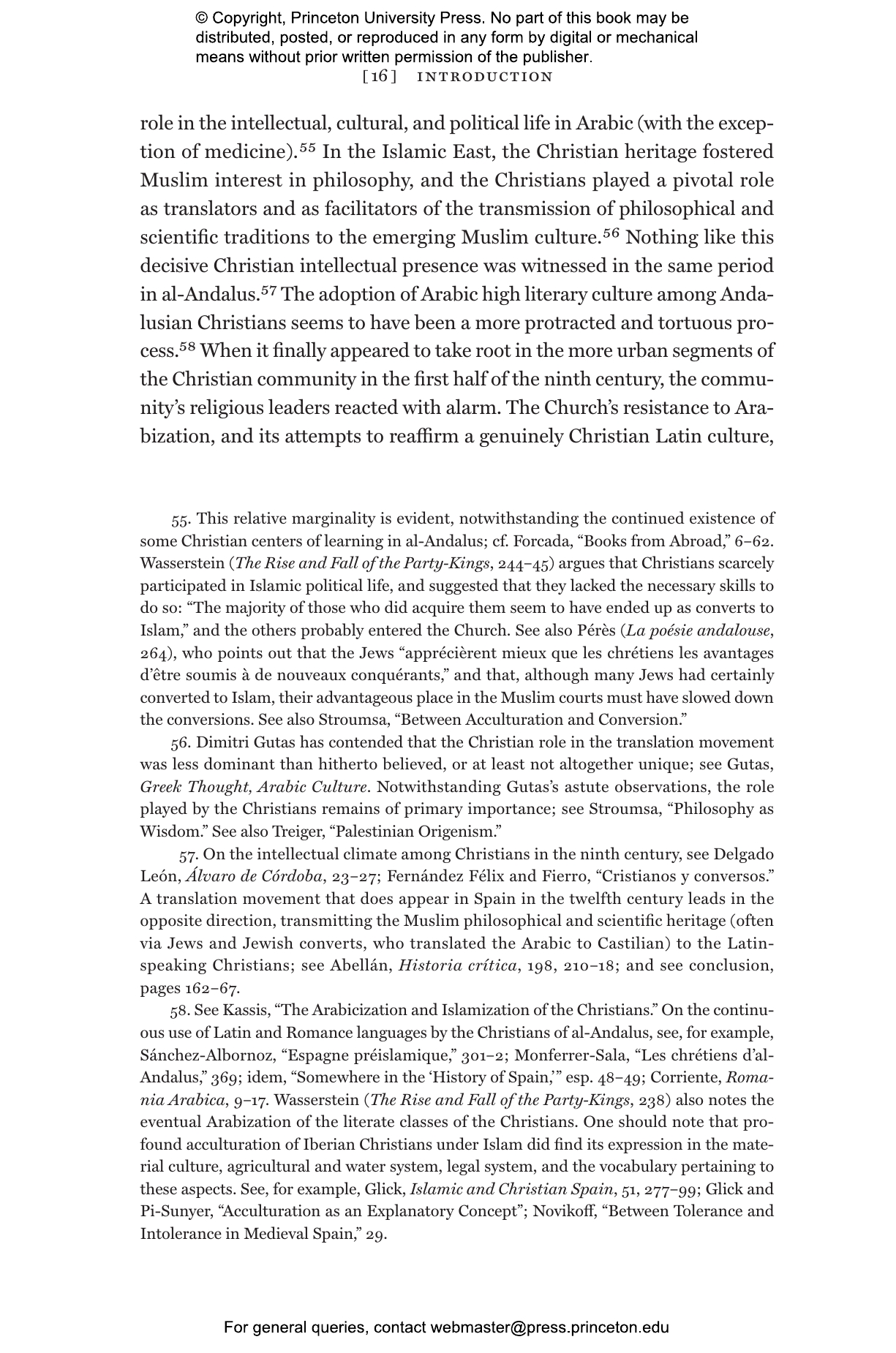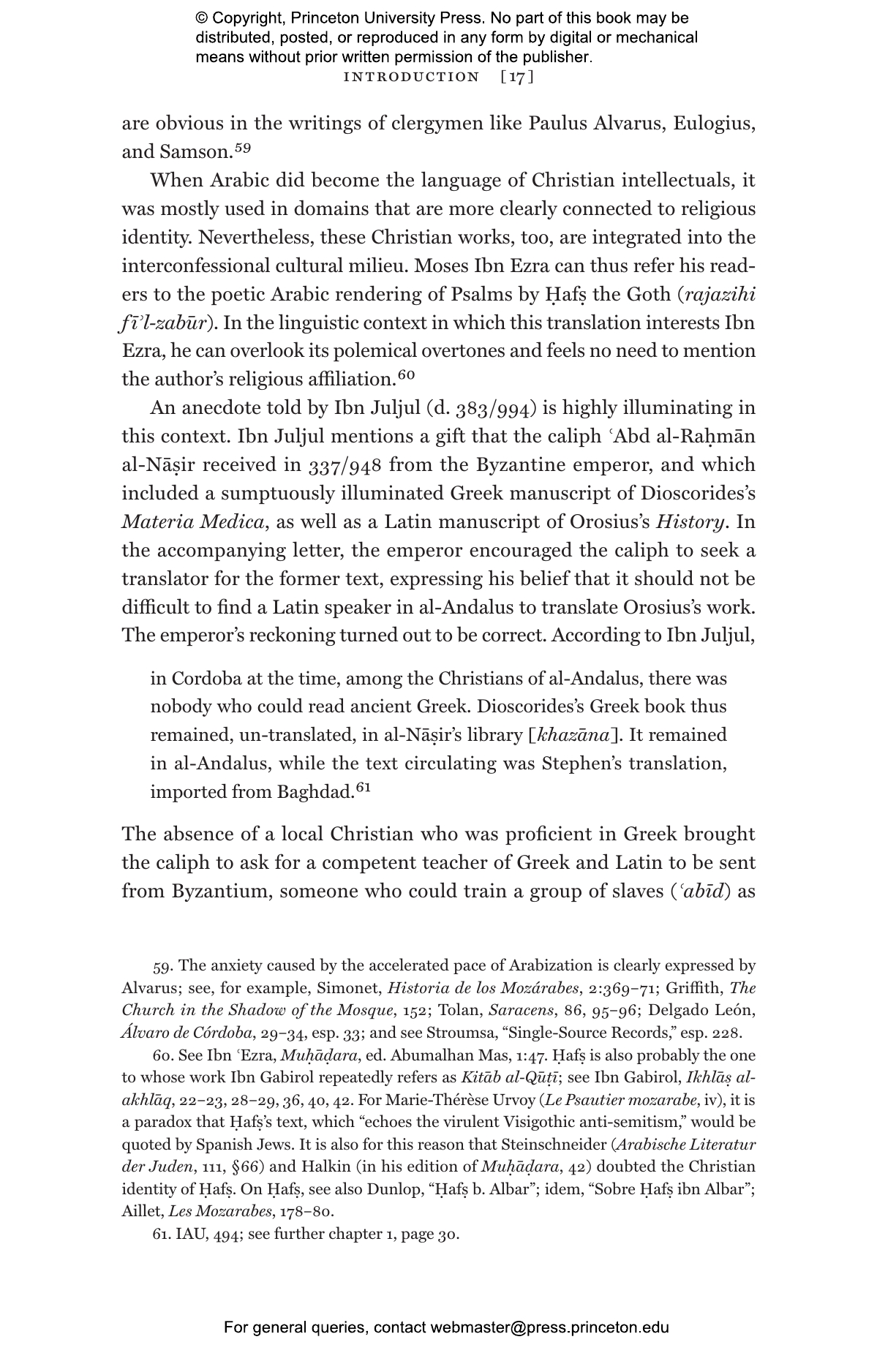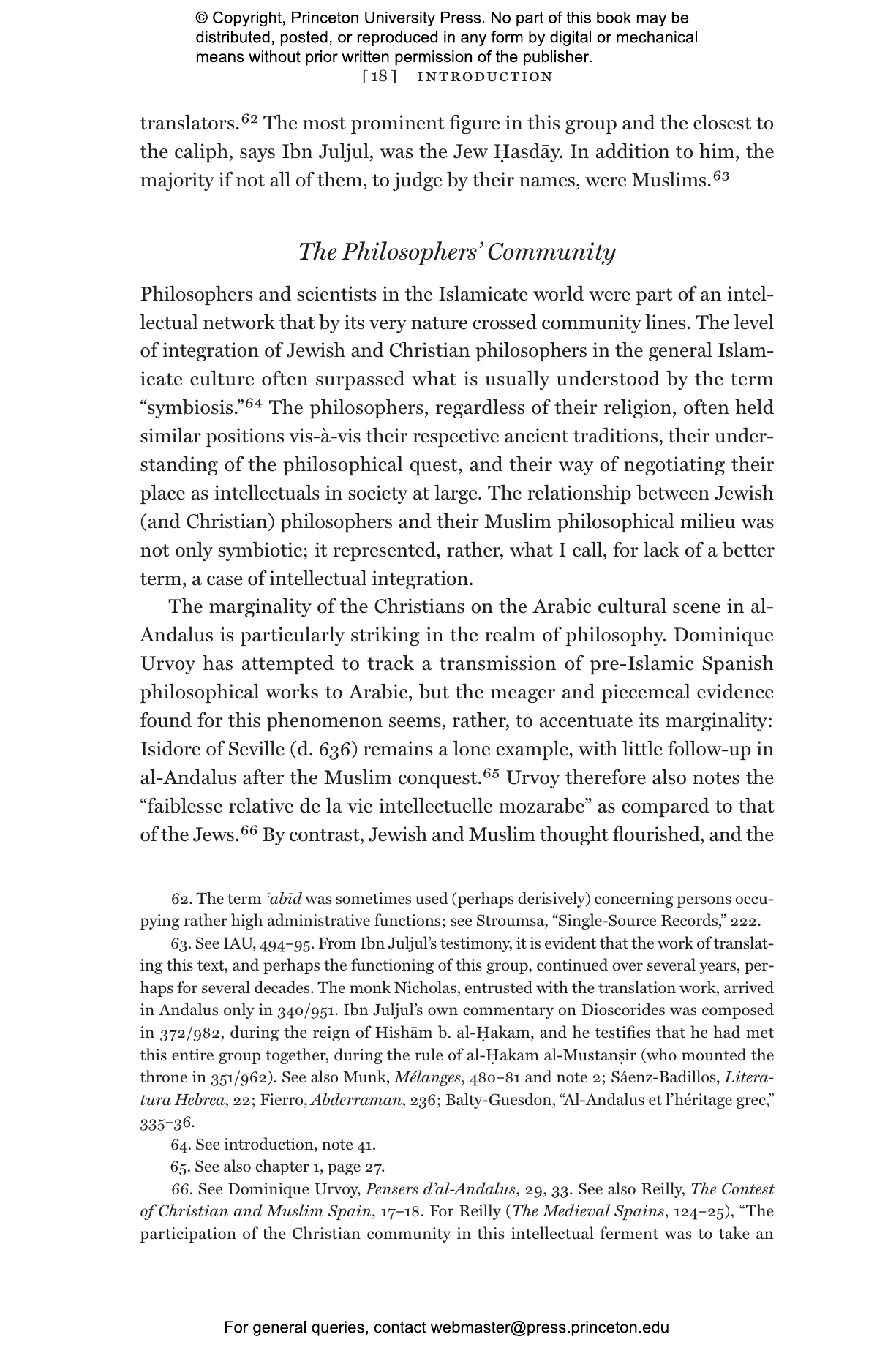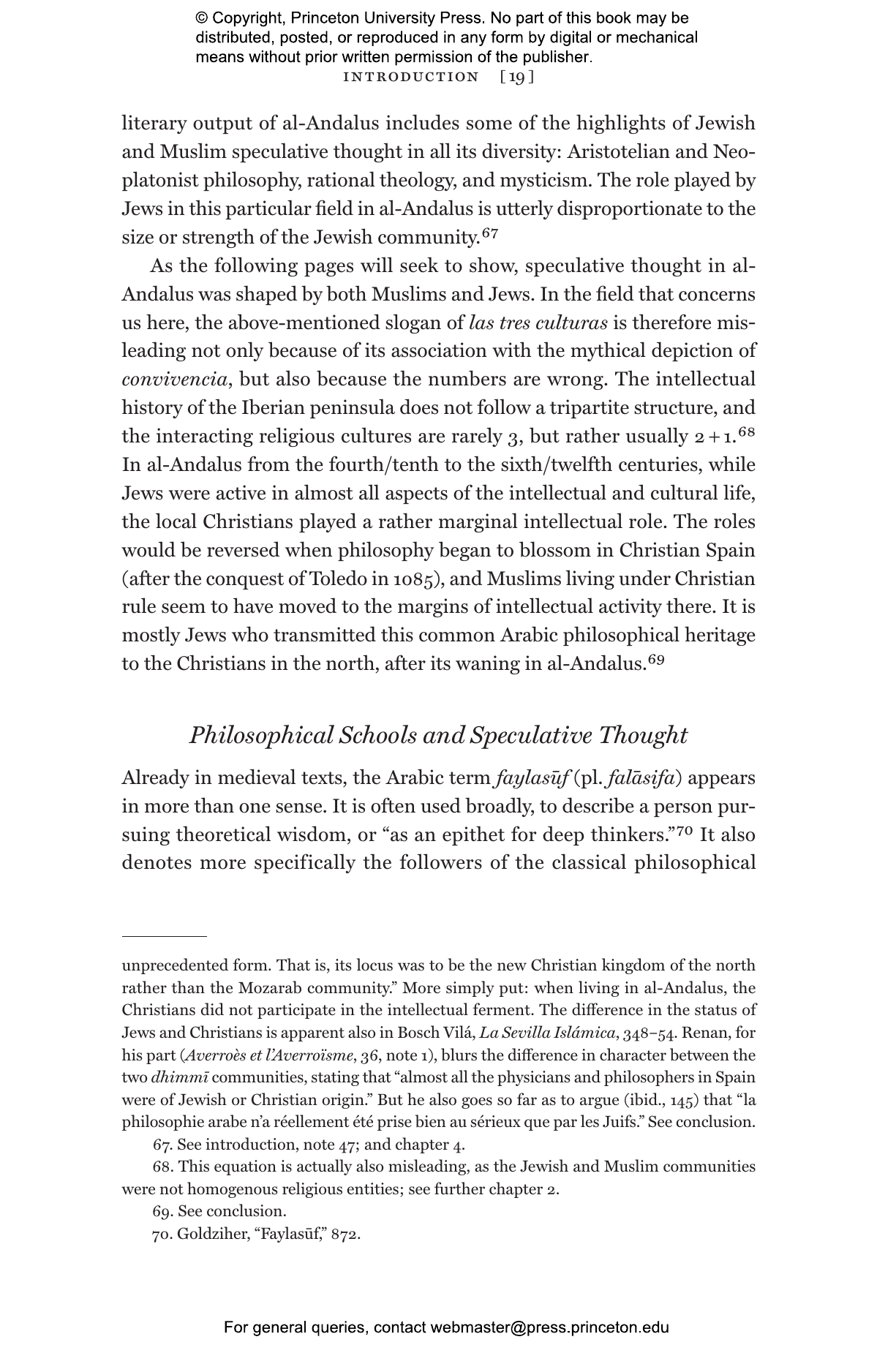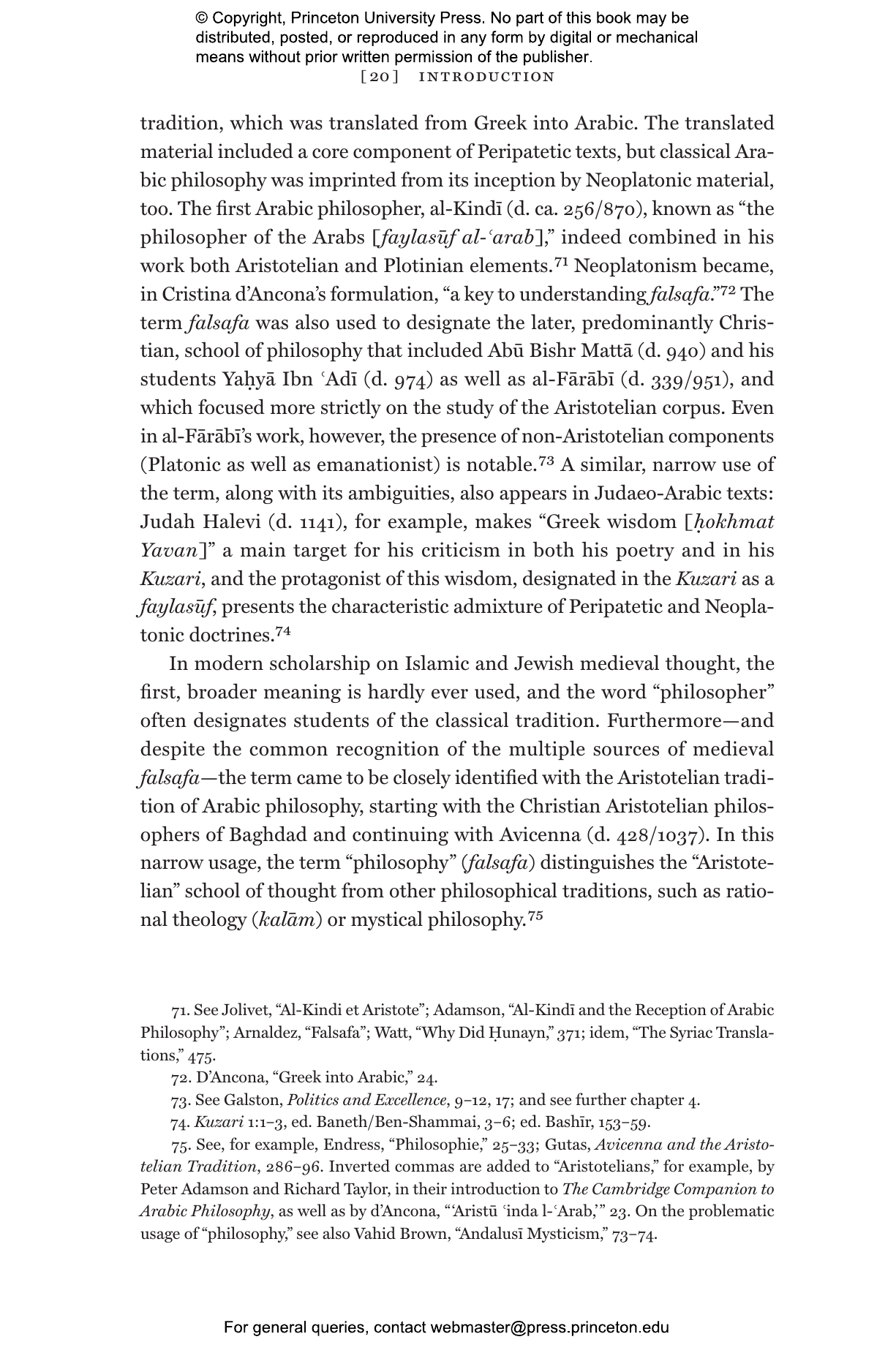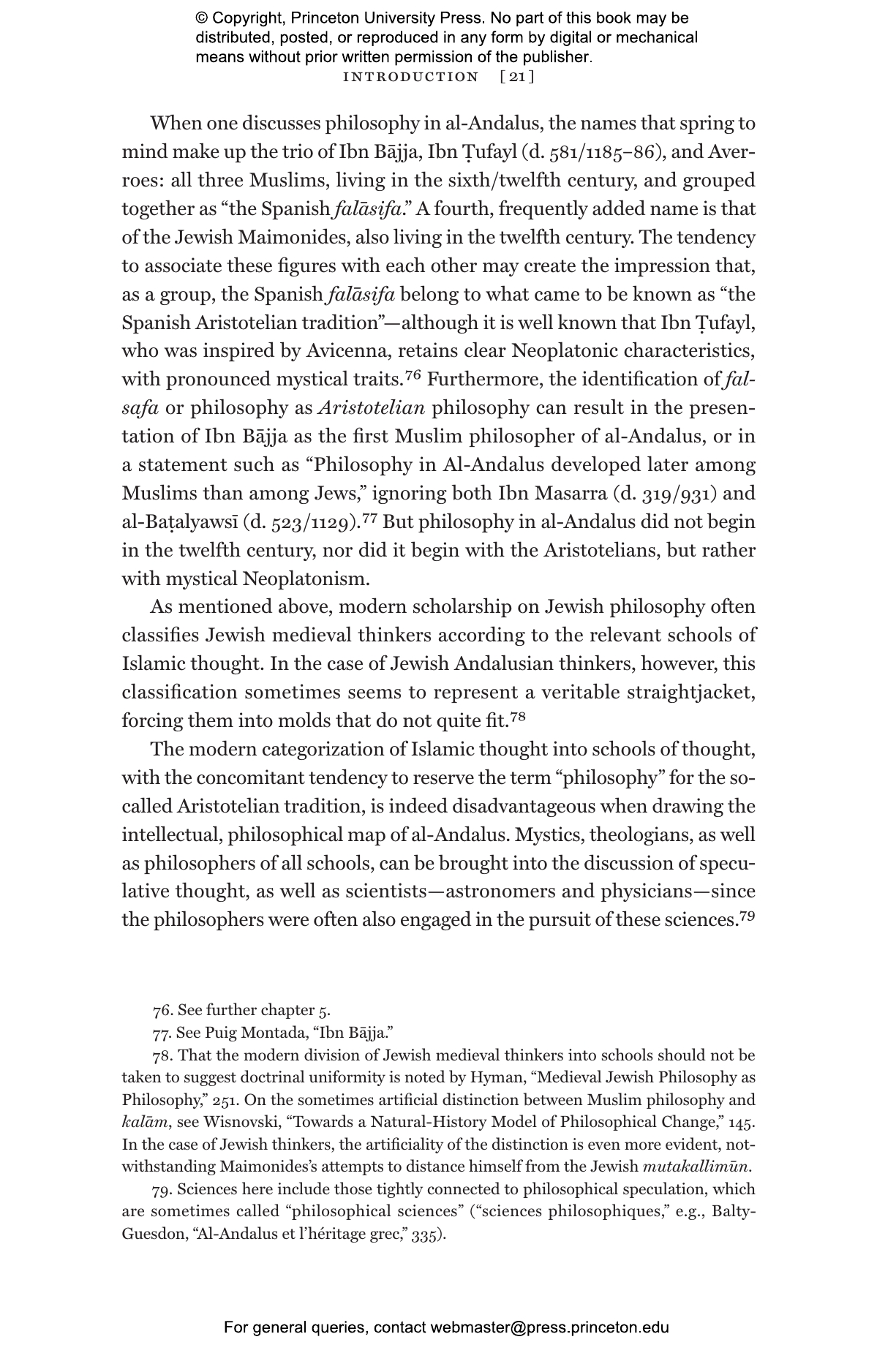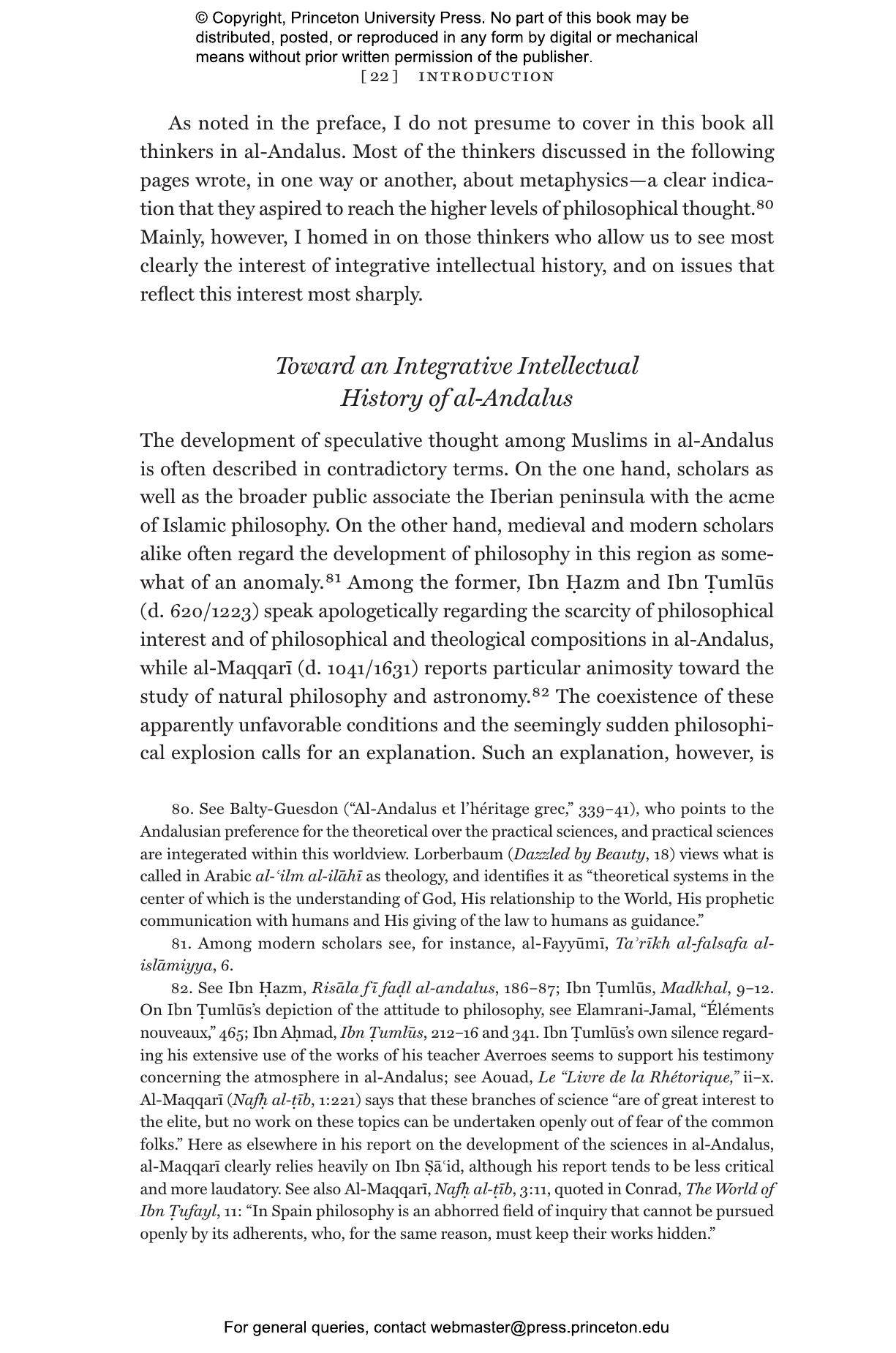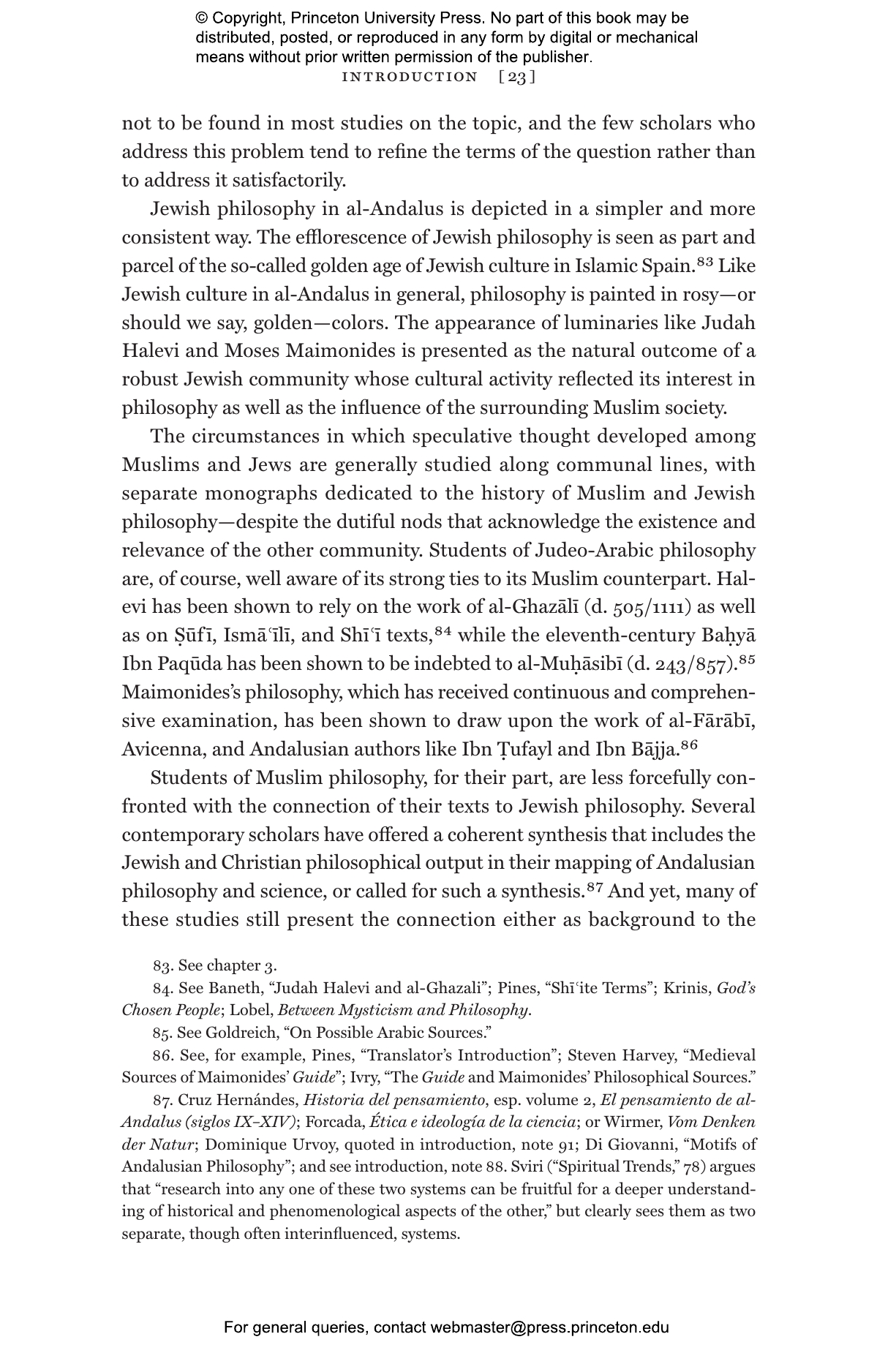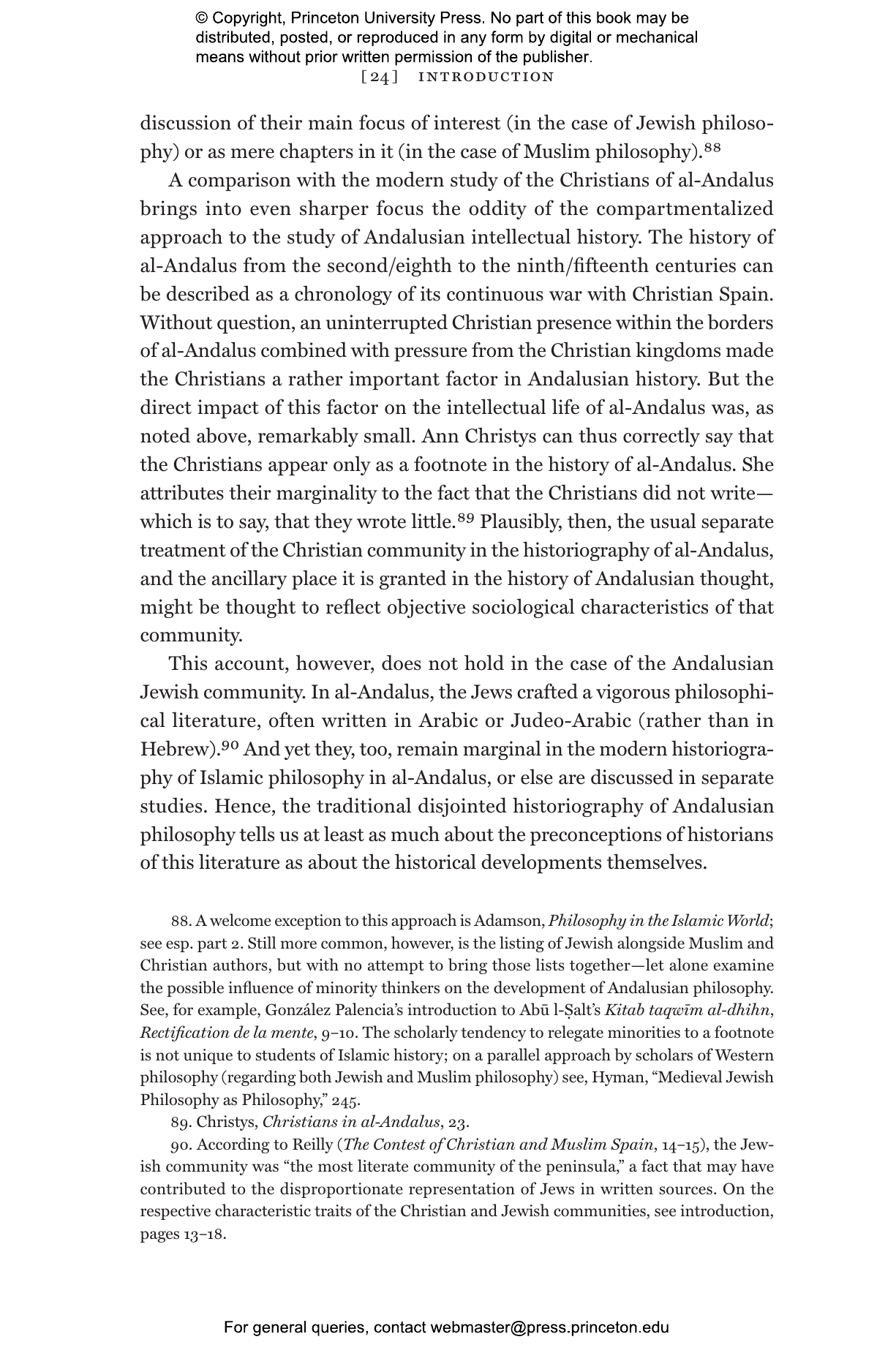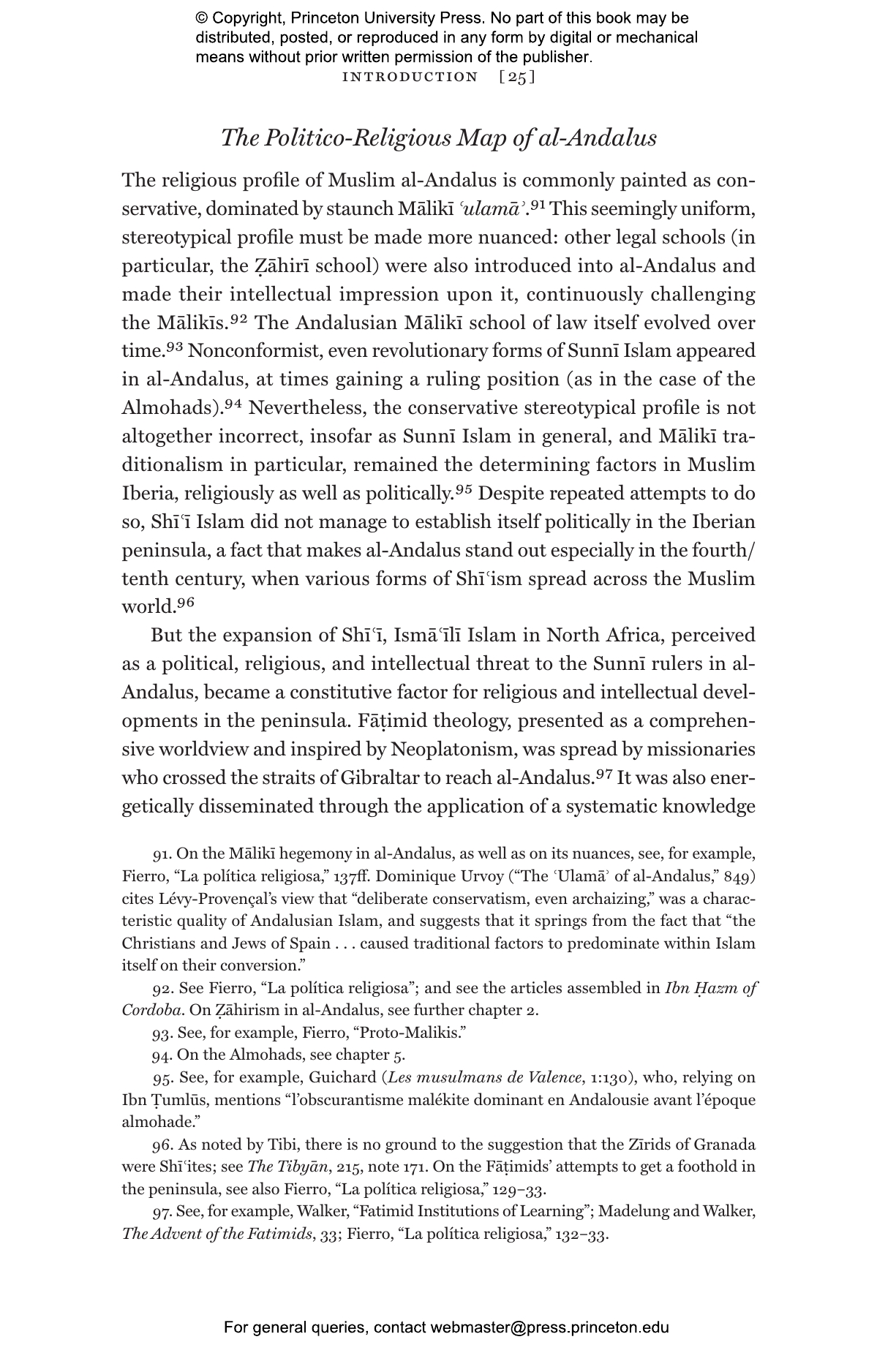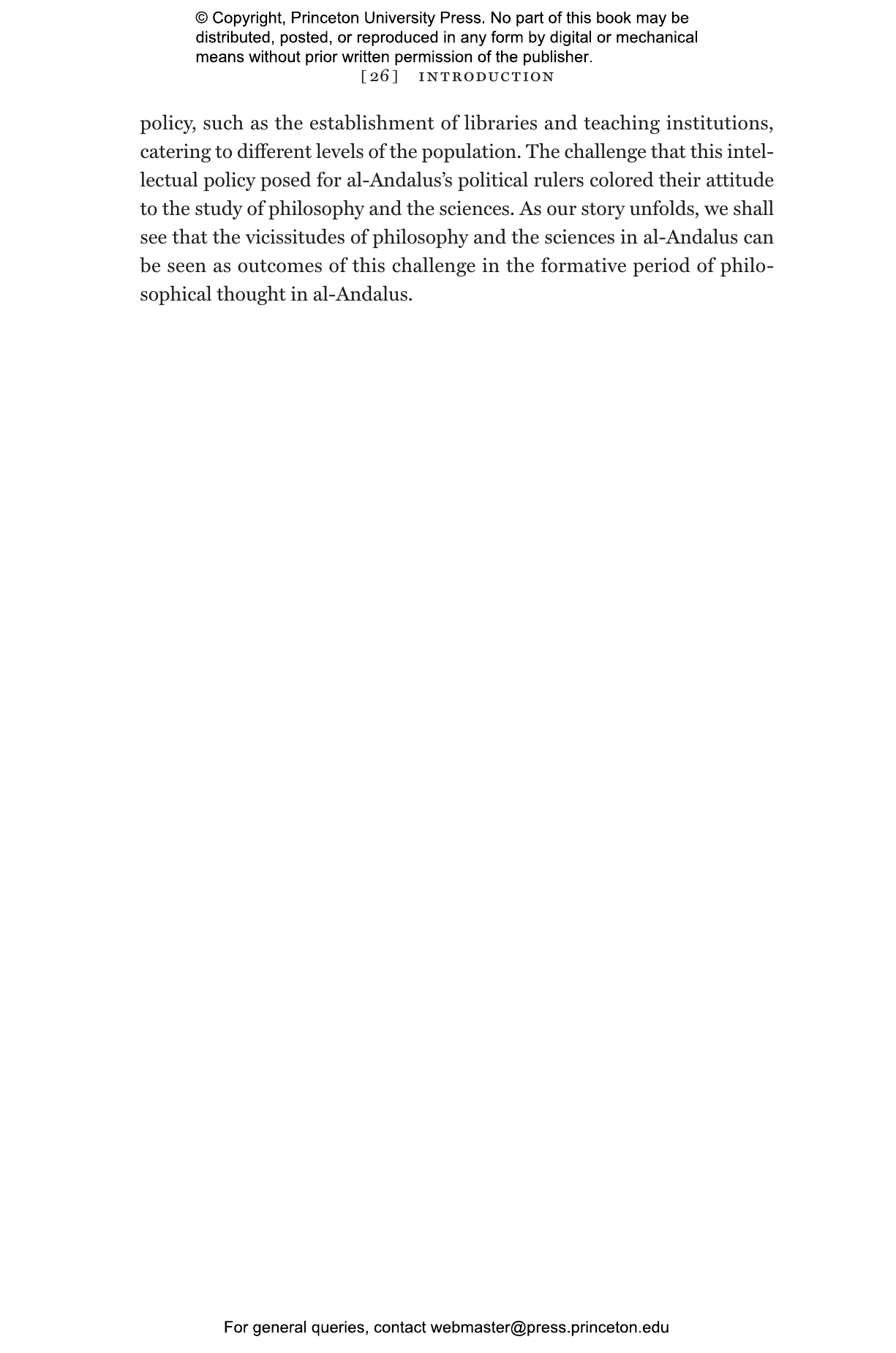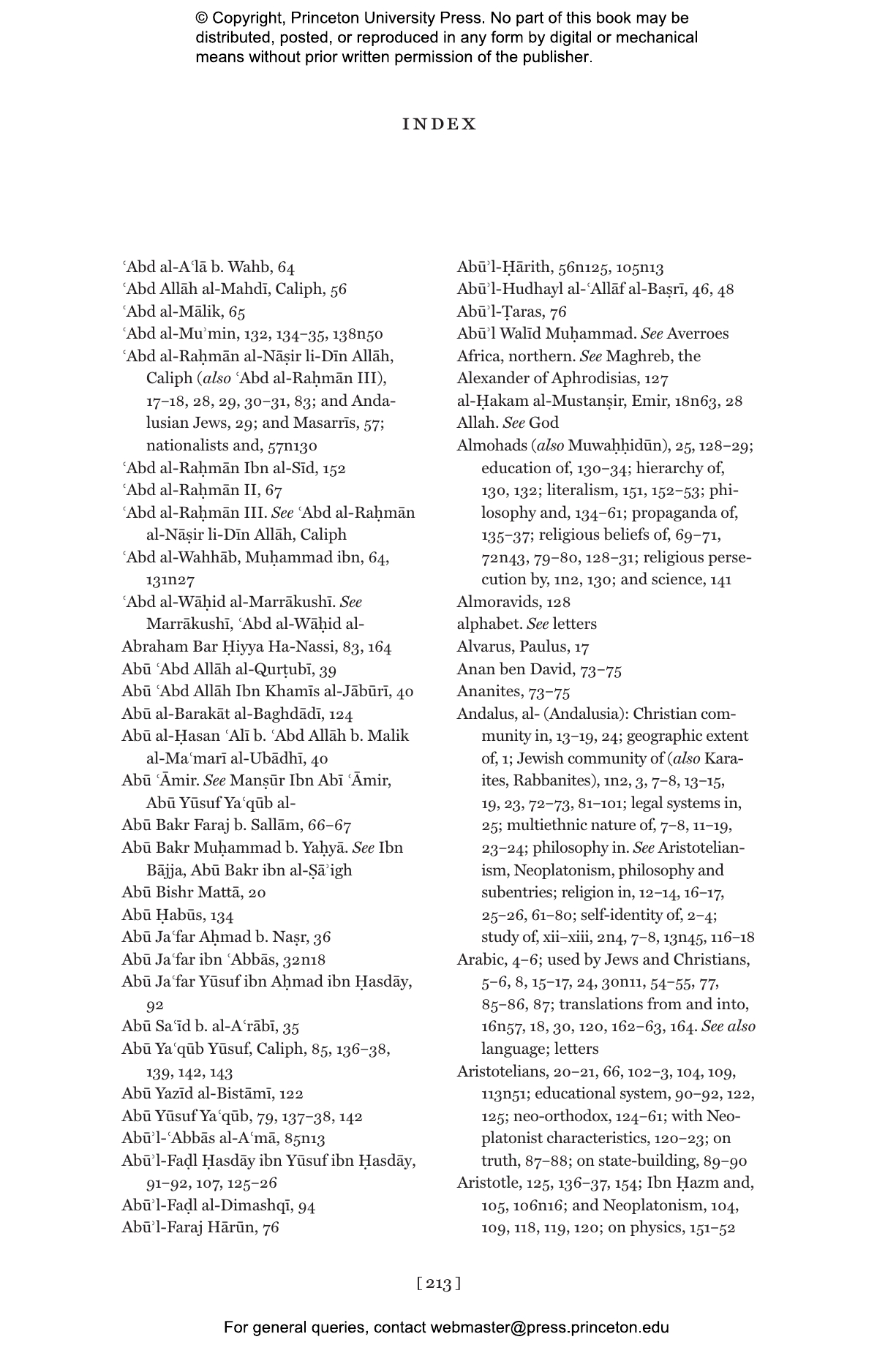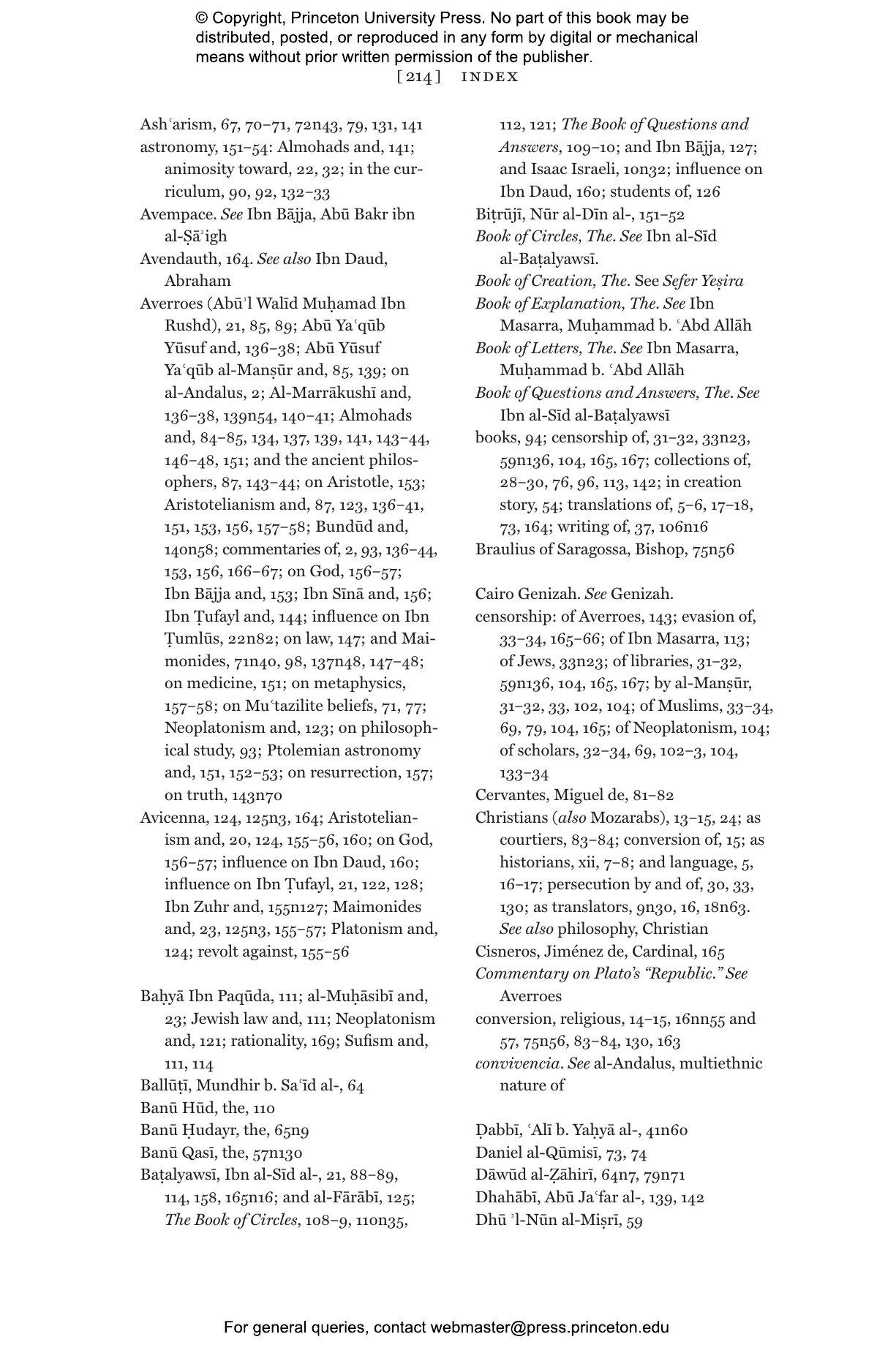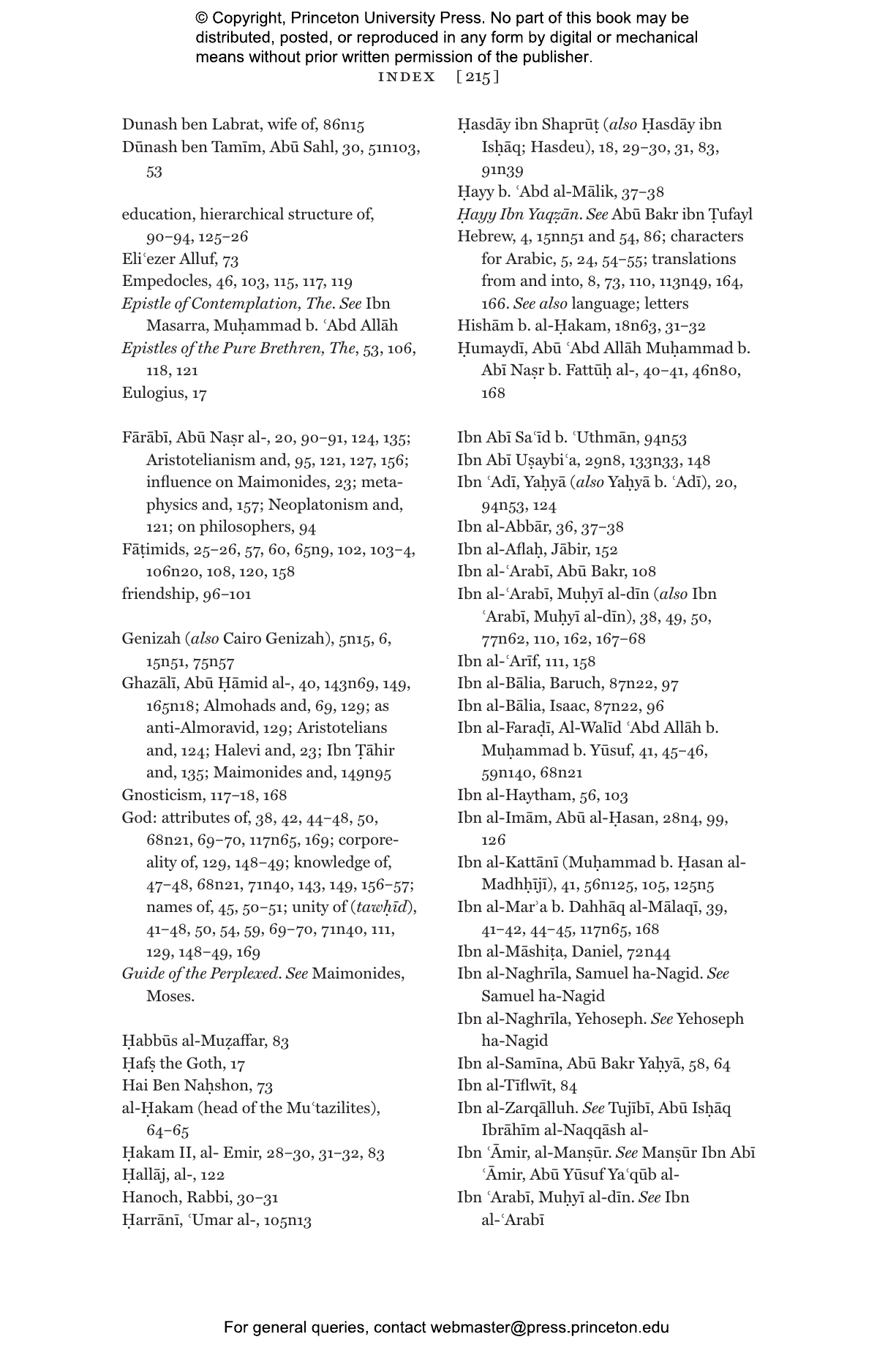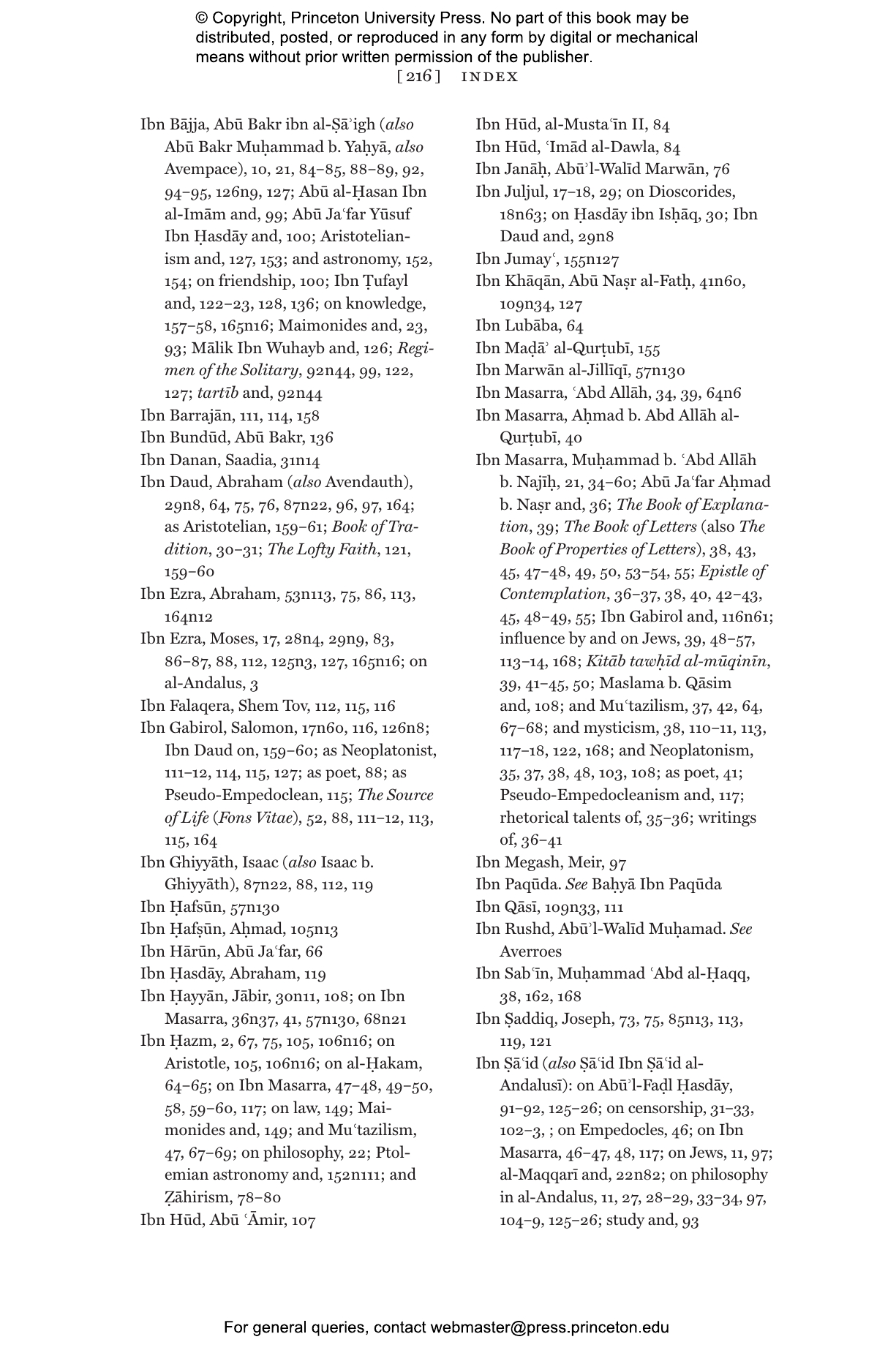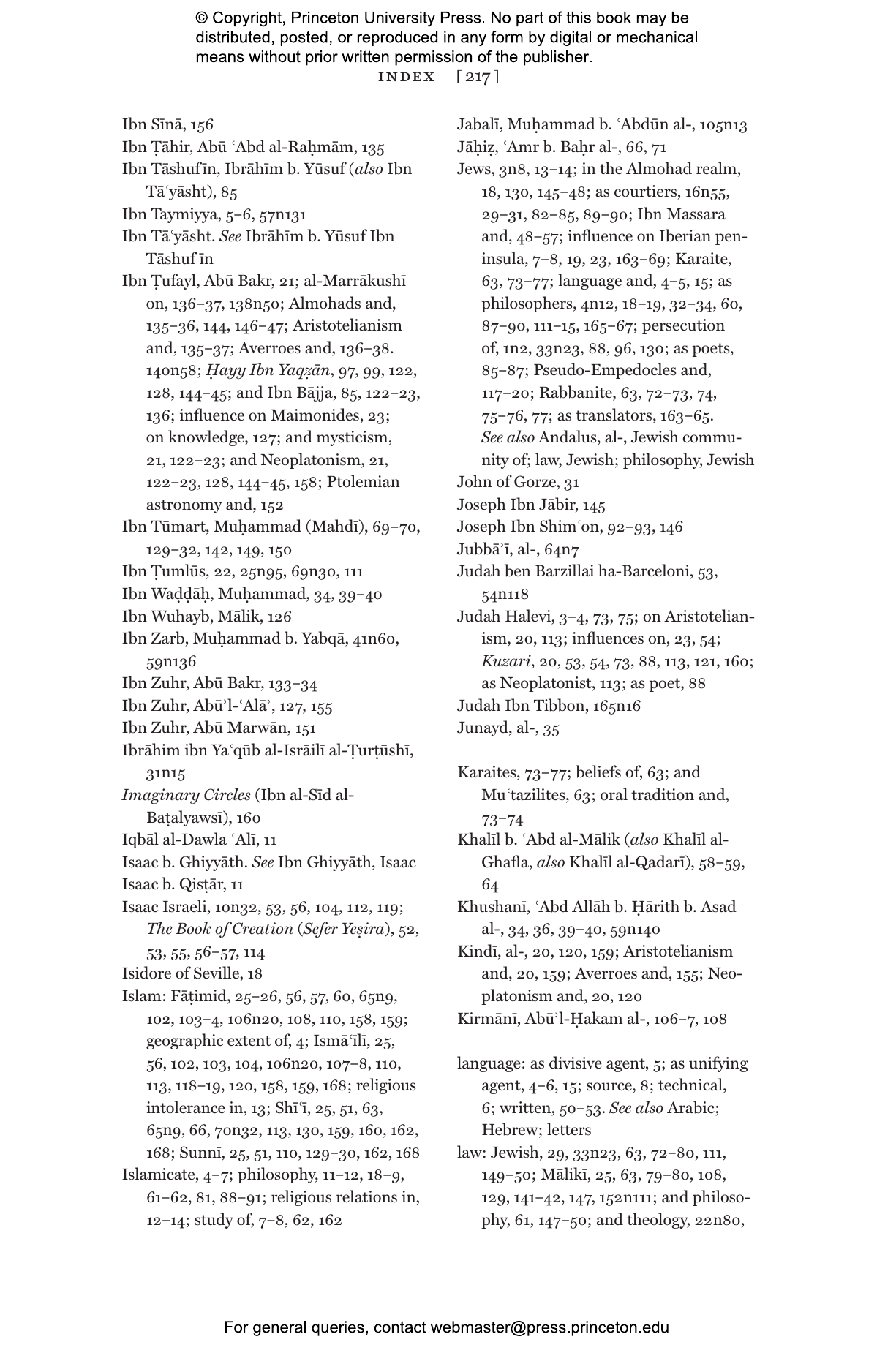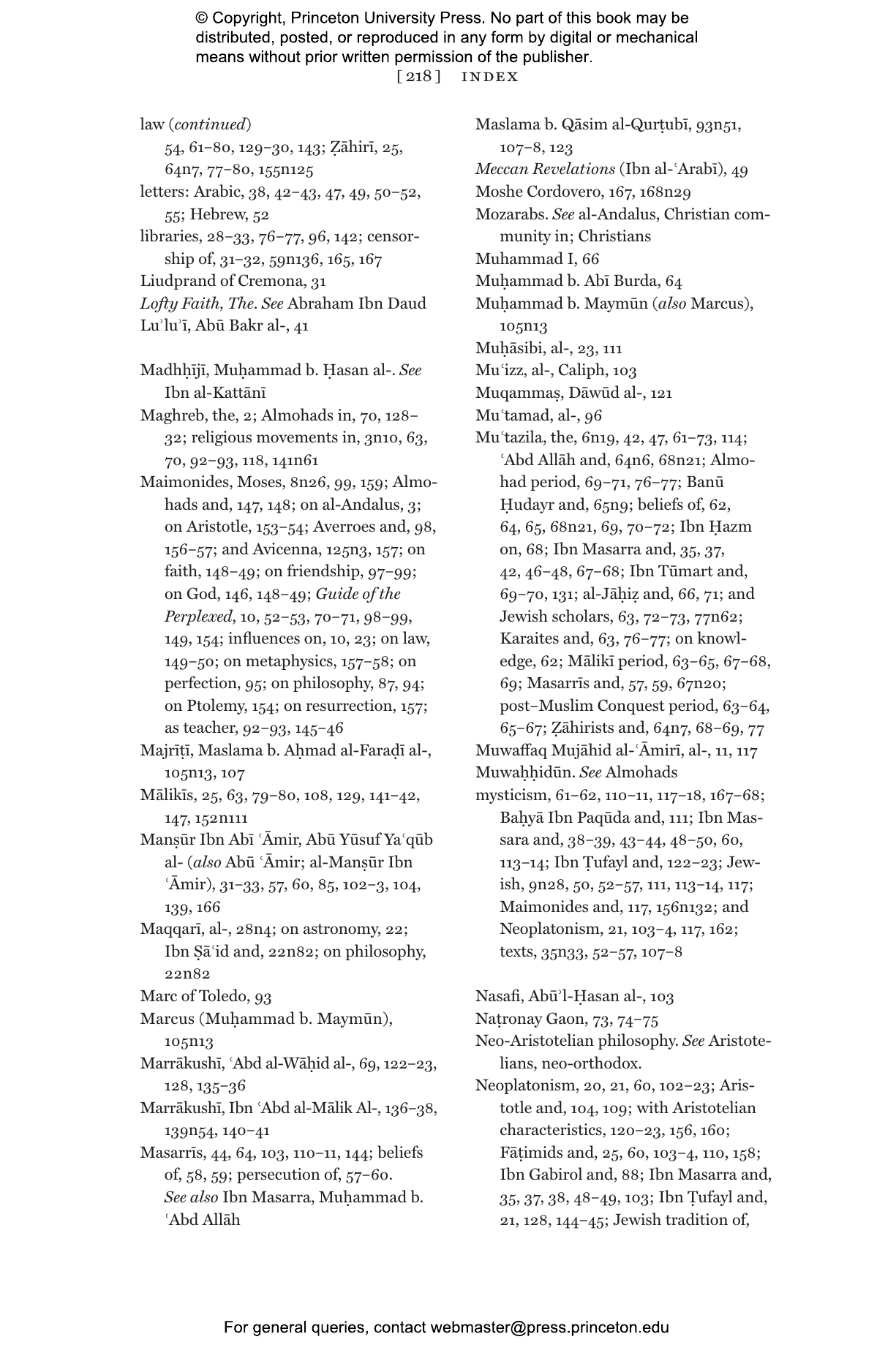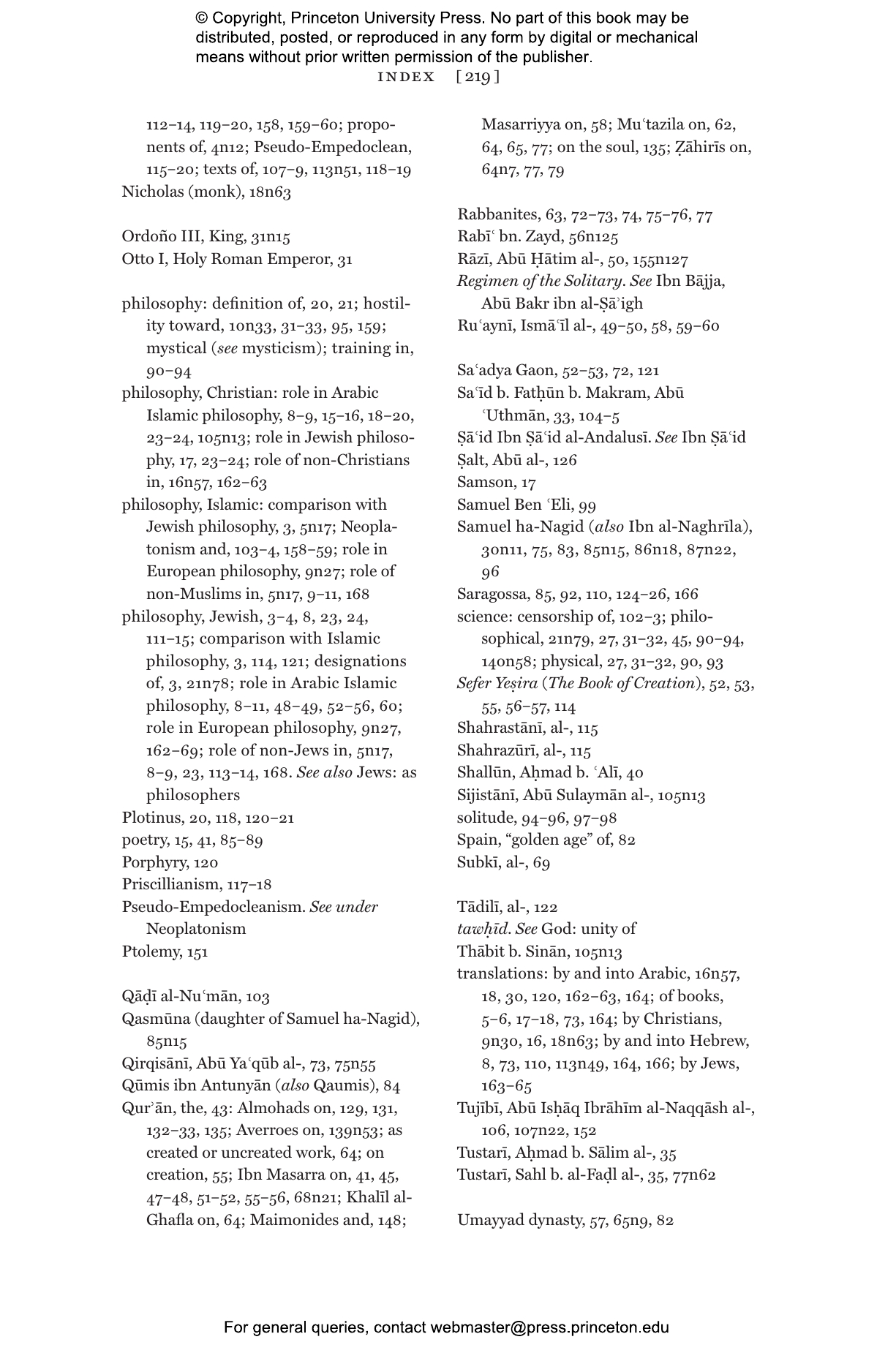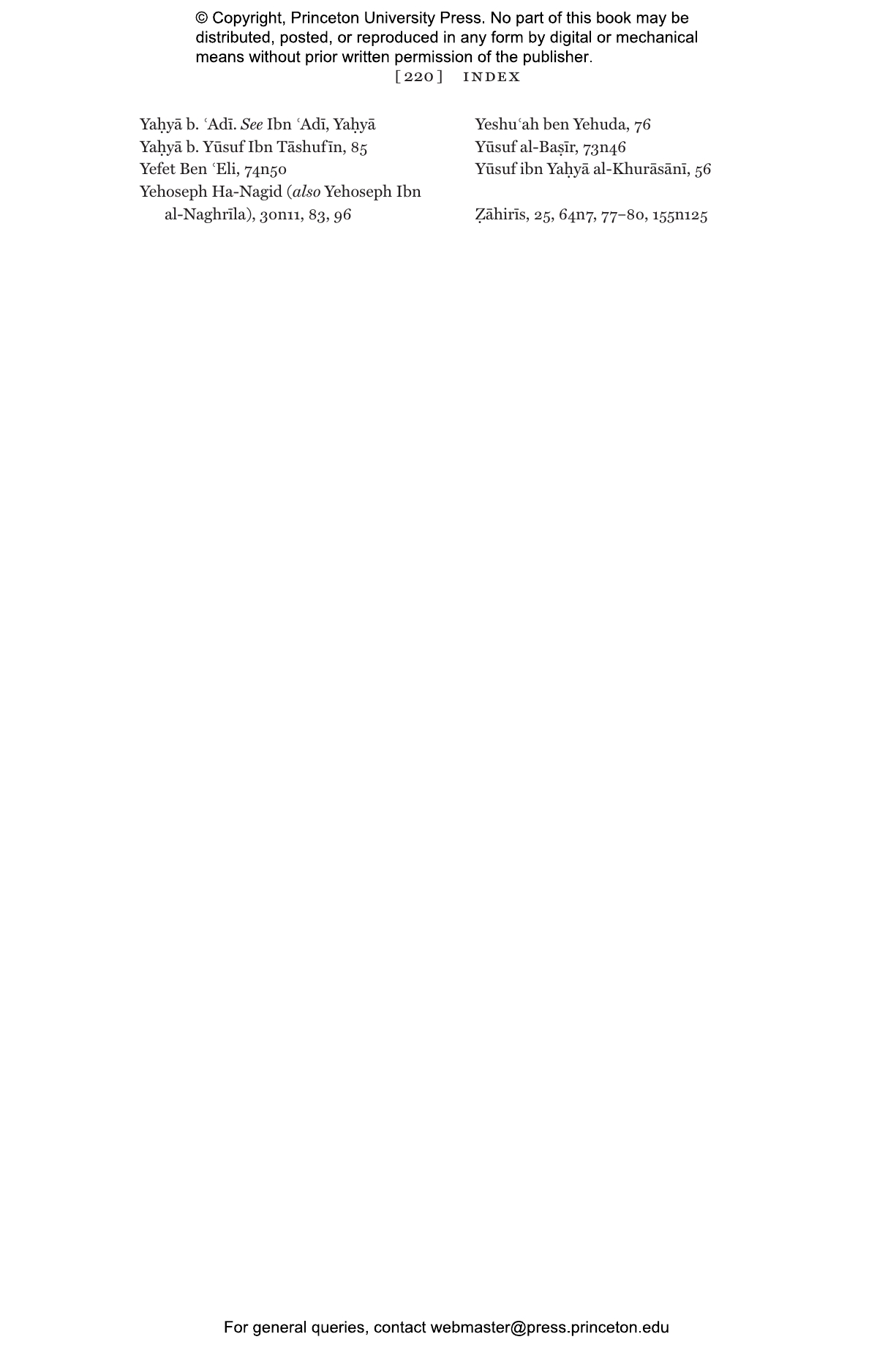Al-Andalus, the Iberian territory ruled by Islam from the eighth to the fifteenth centuries, was home to a flourishing philosophical culture among Muslims and the Jews who lived in their midst. Andalusians spoke proudly of the region’s excellence, and indeed it engendered celebrated thinkers such as Maimonides and Averroes. Sarah Stroumsa offers an integrative new approach to Jewish and Muslim philosophy in al-Andalus, where the cultural commonality of the Islamicate world allowed scholars from diverse religious backgrounds to engage in the same philosophical pursuits.
Stroumsa traces the development of philosophy in Muslim Iberia from its introduction to the region to the diverse forms it took over time, from Aristotelianism and Neoplatonism to rational theology and mystical philosophy. She sheds light on the way the politics of the day, including the struggles with the Christians to the north of the peninsula and the Fāṭimids in North Africa, influenced philosophy in al-Andalus yet affected its development among the two religious communities in different ways.
While acknowledging the dissimilar social status of Muslims and members of the religious minorities, Andalus and Sefarad highlights the common ground that united philosophers, providing new perspective on the development of philosophy in Islamic Spain.
Sarah Stroumsa is the Alice and Jack Ormut Professor Emerita of Arabic Studies at the Hebrew University of Jerusalem. Her books include Maimonides in His World: Portrait of a Mediterranean Thinker (Princeton) and Freethinkers of Medieval Islam: Ibn al-Rāwandī, Abū Bakr al-Rāzī, and Their Impact on Islamic Thought.
"[O]ffers a novel account… of Andalusian philosophy during this time of dizzying political change and explosive intellectual developments."—Journal of the American Academy of Religion
"A wonderful piece of scholarship… a new and comprehensive approach to the history of Jewish and Muslim philosophy."—Maydan
"A masterful work.
"—James A. Diamond, Medieval Encounters
"Andalus and Sefarad is both a masterful synthesis and a breath of fresh air. . . . [It is] persuasive, multifaceted, authoritative, and well documented."—Anna Ayse Akasoy, Journal of the American Oriental Society
"Essential to the overall conversation regarding irreligious relationships in Islamic Spain. . . . [Andalus and Sefarad] does an excellent job of integrating previously or currently accepted historical ideologies and placing a new lens over this time period."—Madison Tarleton, Reading Religion
"Stroumsa's fascinating and well-told narrative is premised on the controversial but appealing claim that Jewish and Muslim philosophy in al-Andalus are parts of the same story and must be studied together. She effortlessly crosses religious, cultural, community, linguistic, and philosophic borders. This together with her vast erudition and fresh insights enable her to make a compelling case for the integrative intellectual history presented in this book."—Steven Harvey, Bar-Ilan University
"This book offers a detailed and fascinating overview of the philosophical encounter between Jews and Muslims in the time of convivencia on the Iberian peninsula. Going well beyond discussion of familiar names like Averroes and Maimonides, it demonstrates that there was a shared intellectual culture that spanned religious divides and made medieval Andalus the most ecumenical space for philosophy in premodern Europe. Sarah Stroumsa, a leading expert on the relation between Jewish and Islamic thought, is a sure guide, and her book is required reading for anyone with an interest in Andalusian thought."—Peter Adamson, author of Philosophy in the Islamic World
